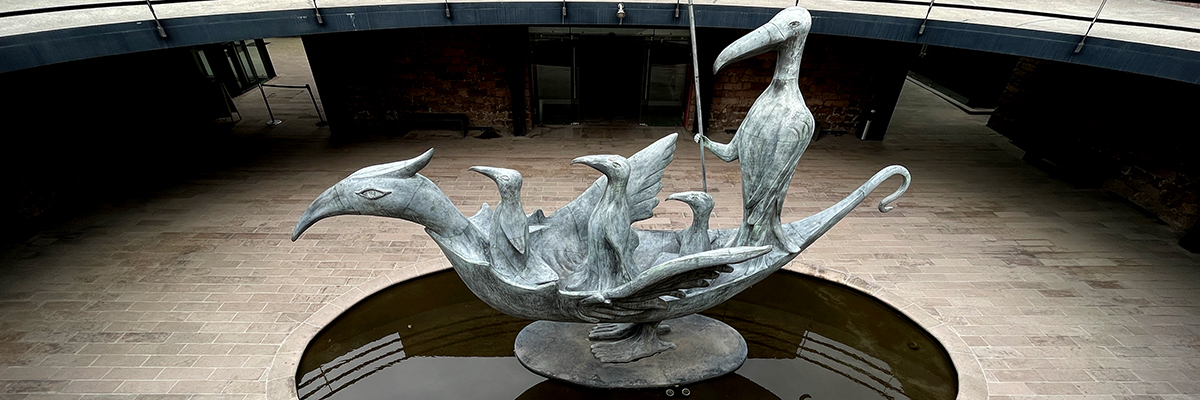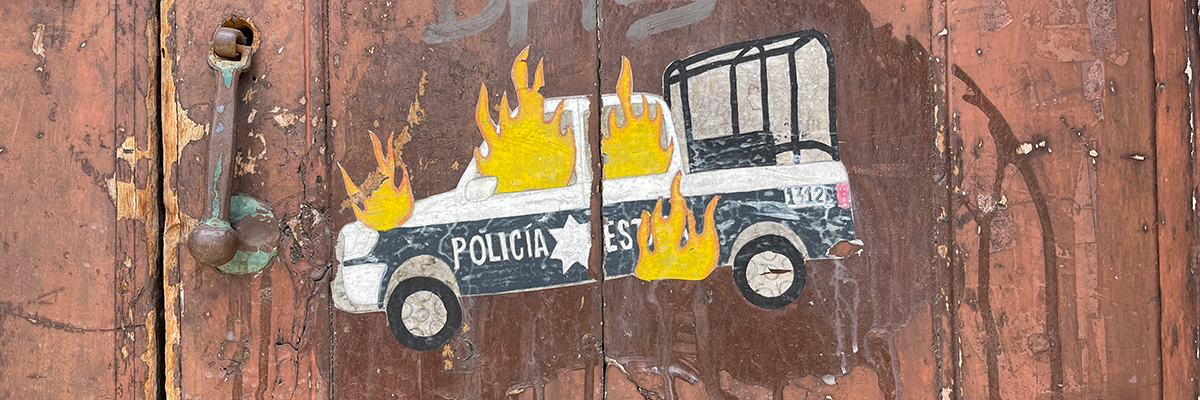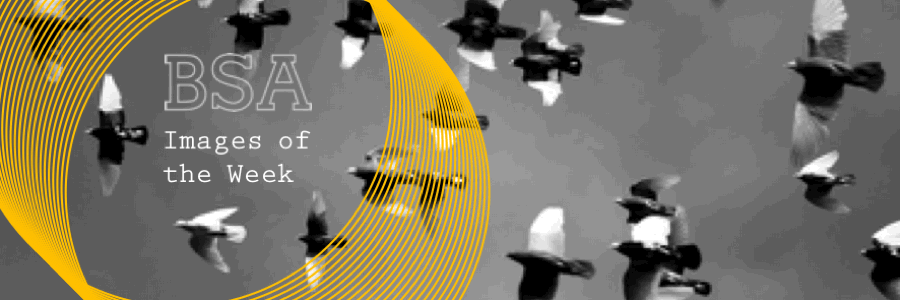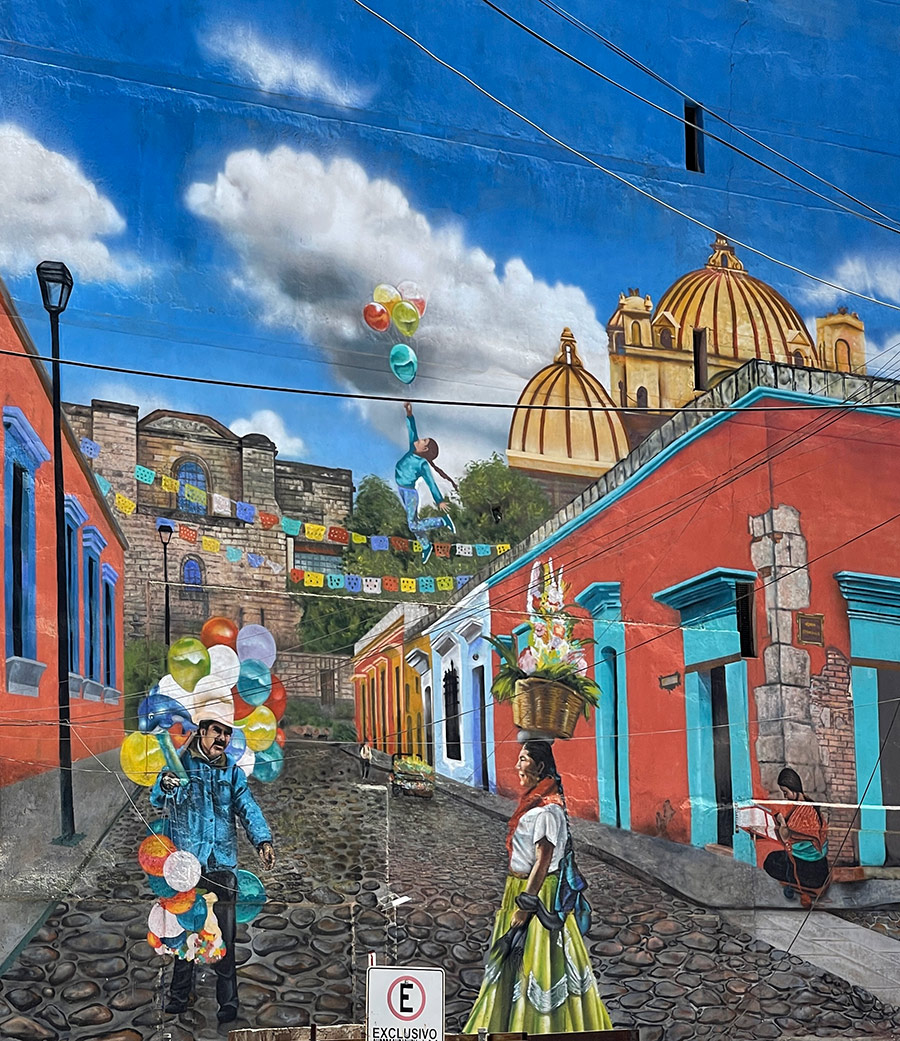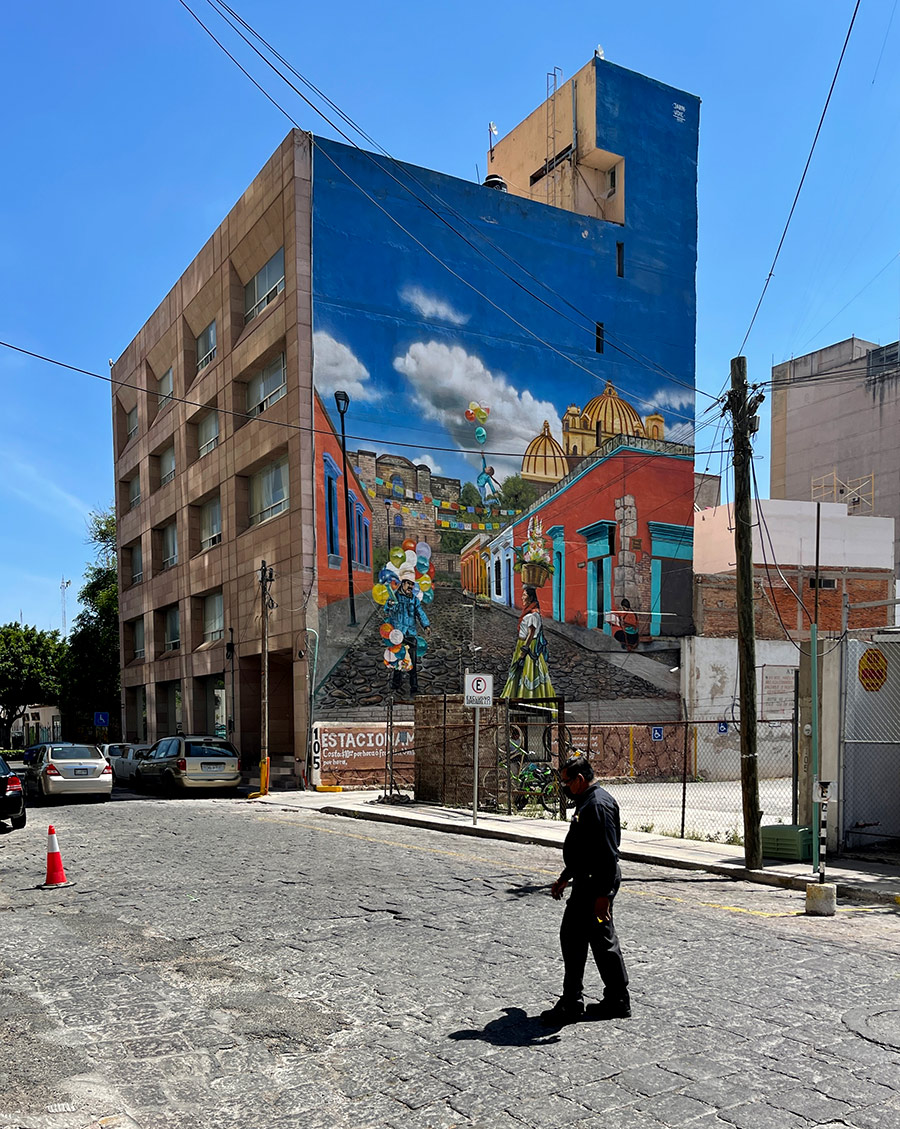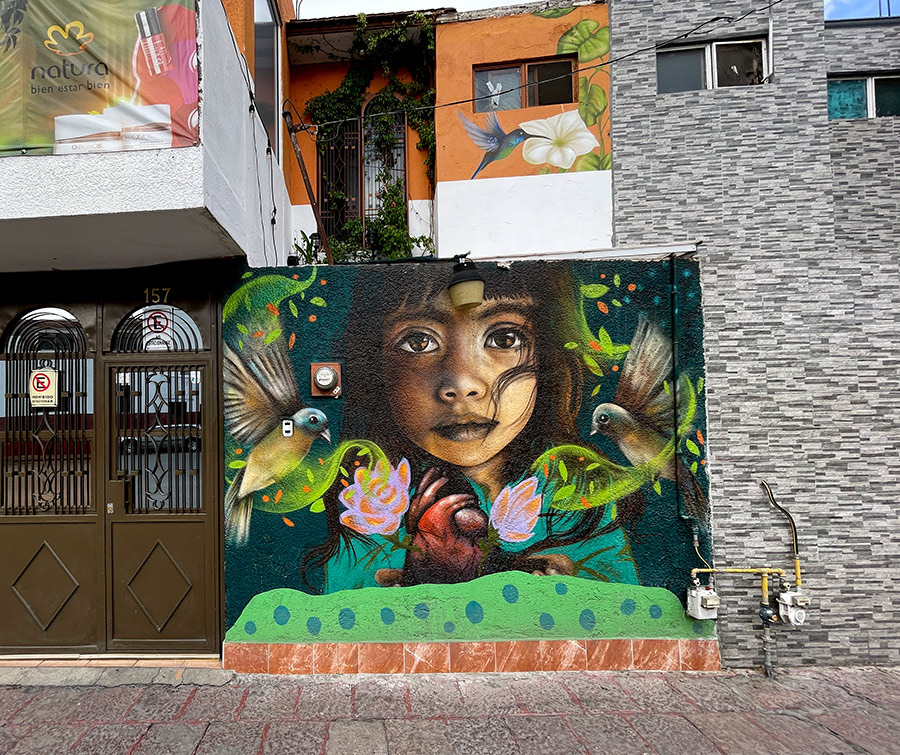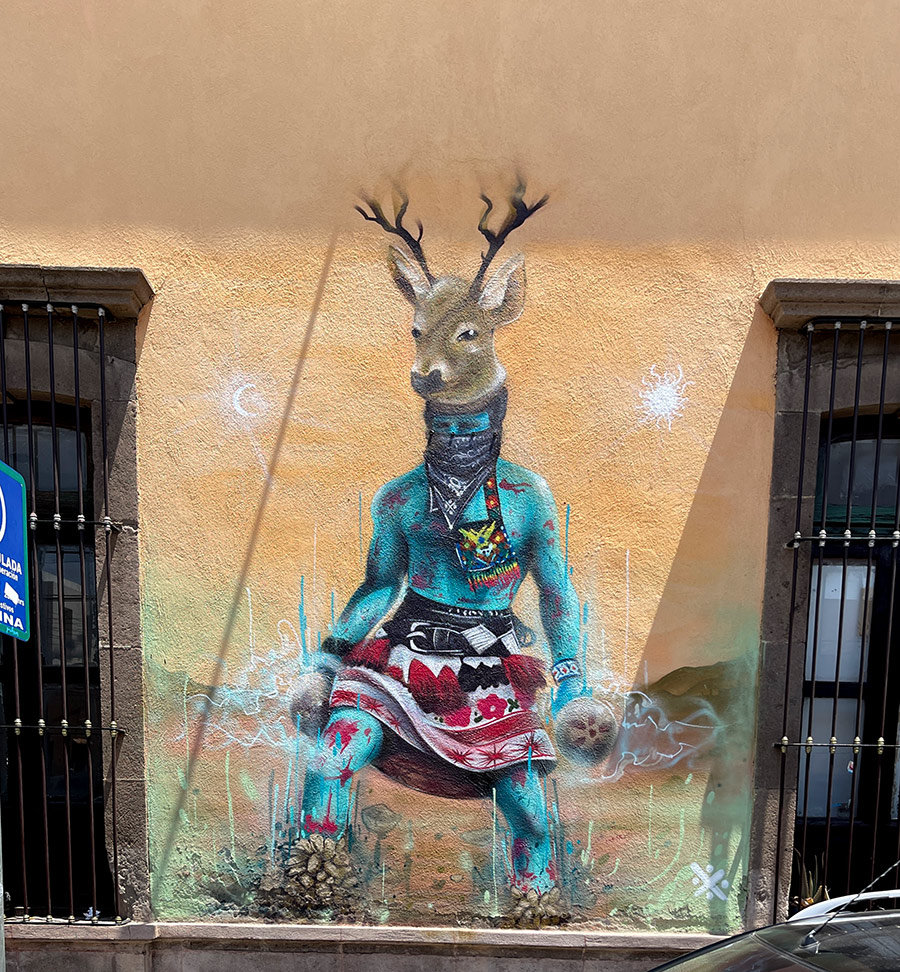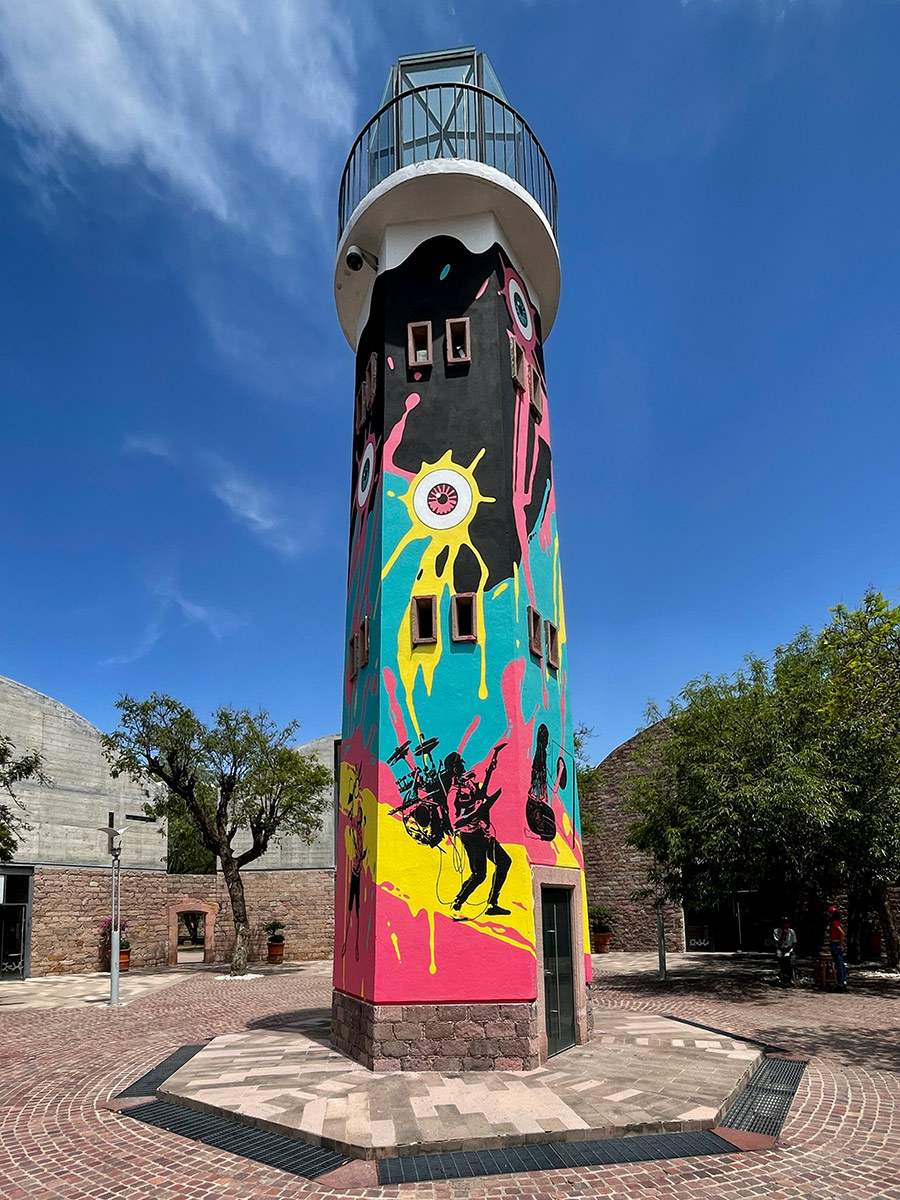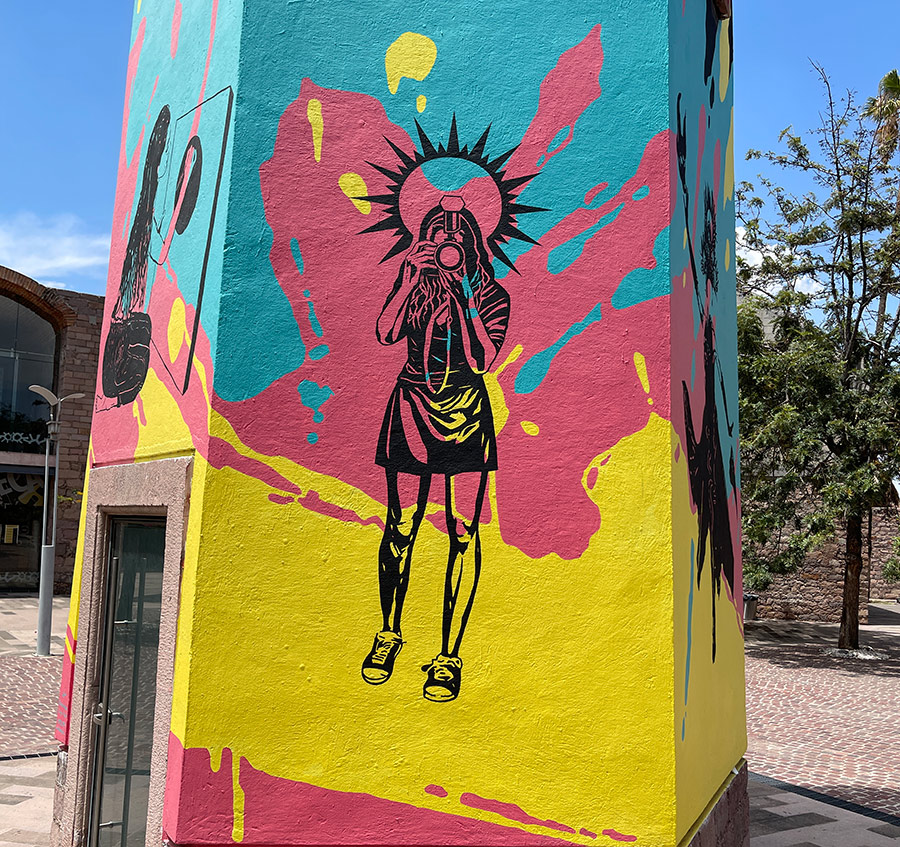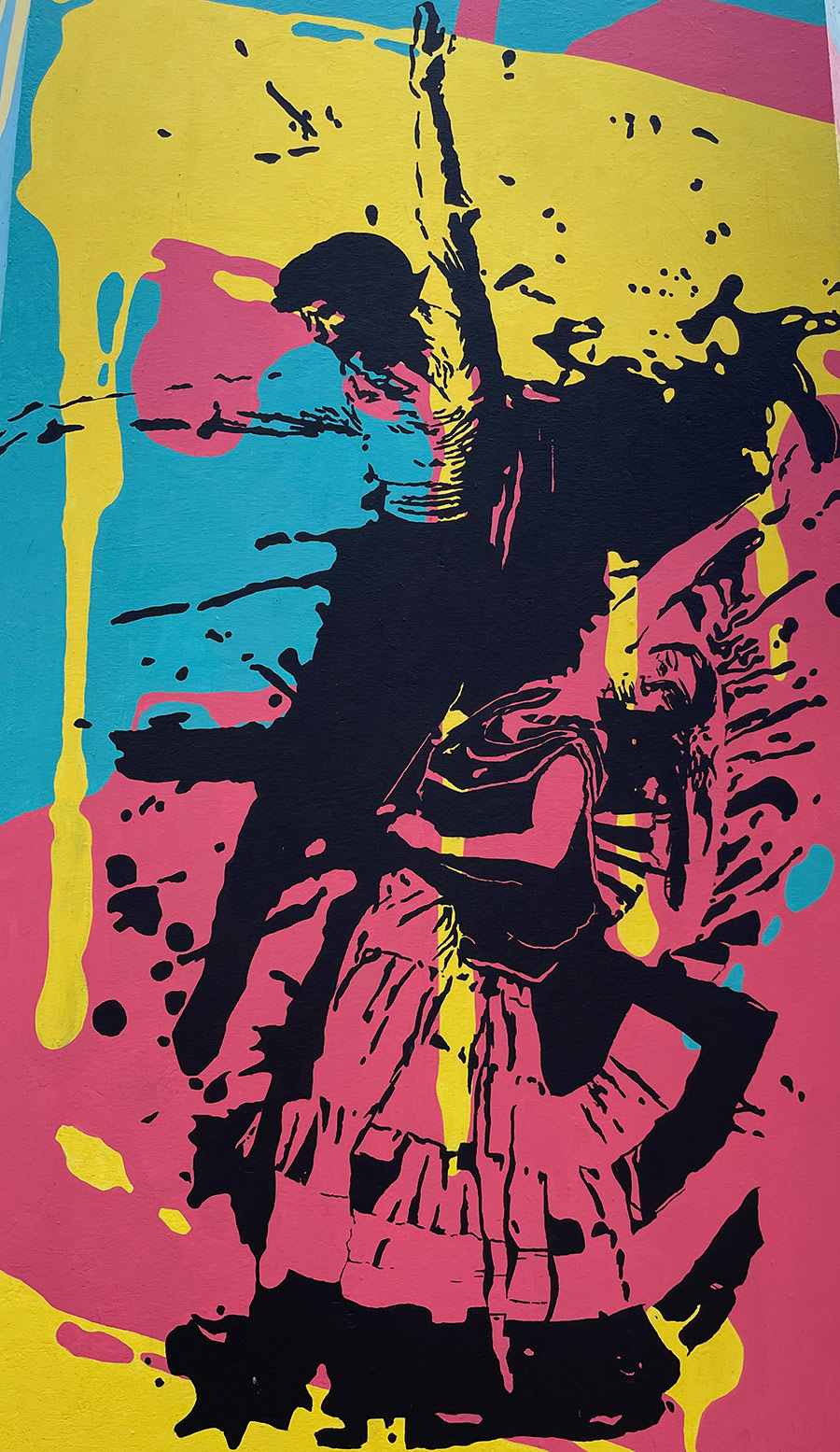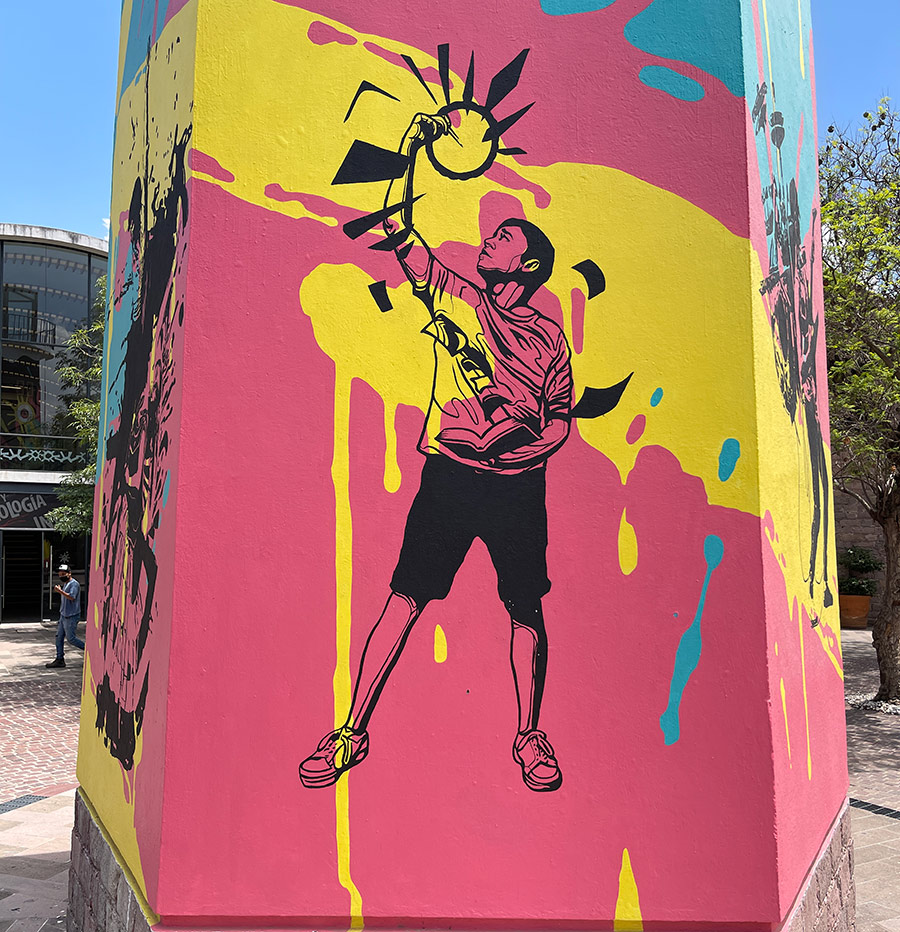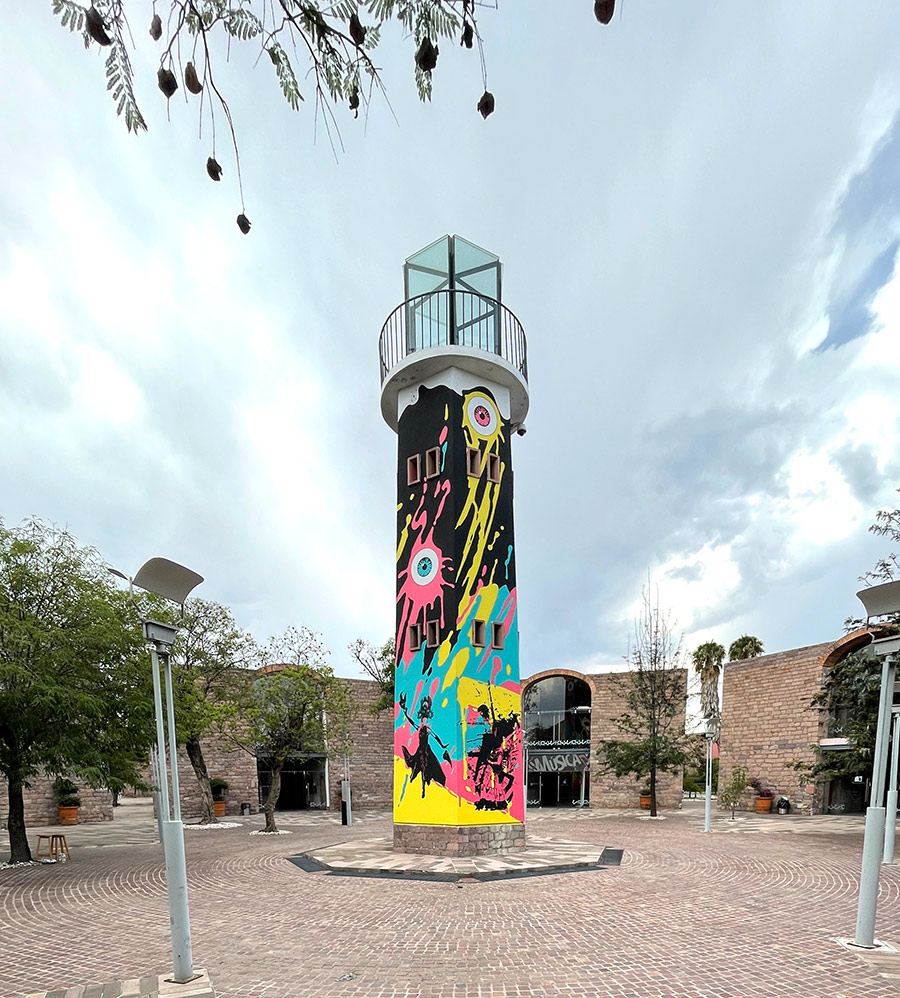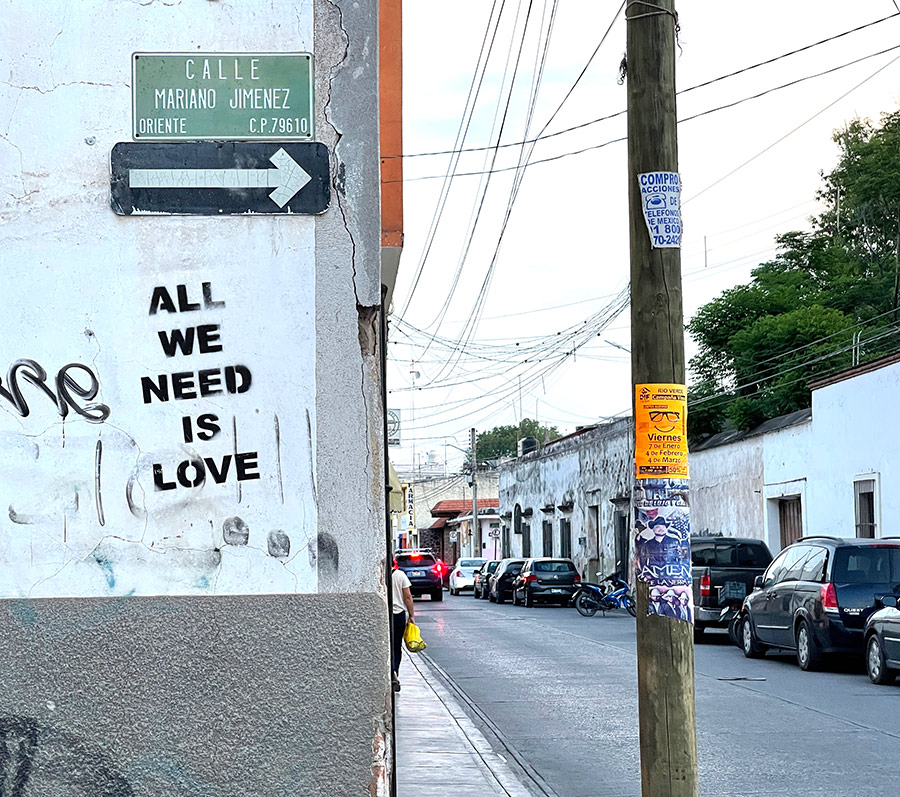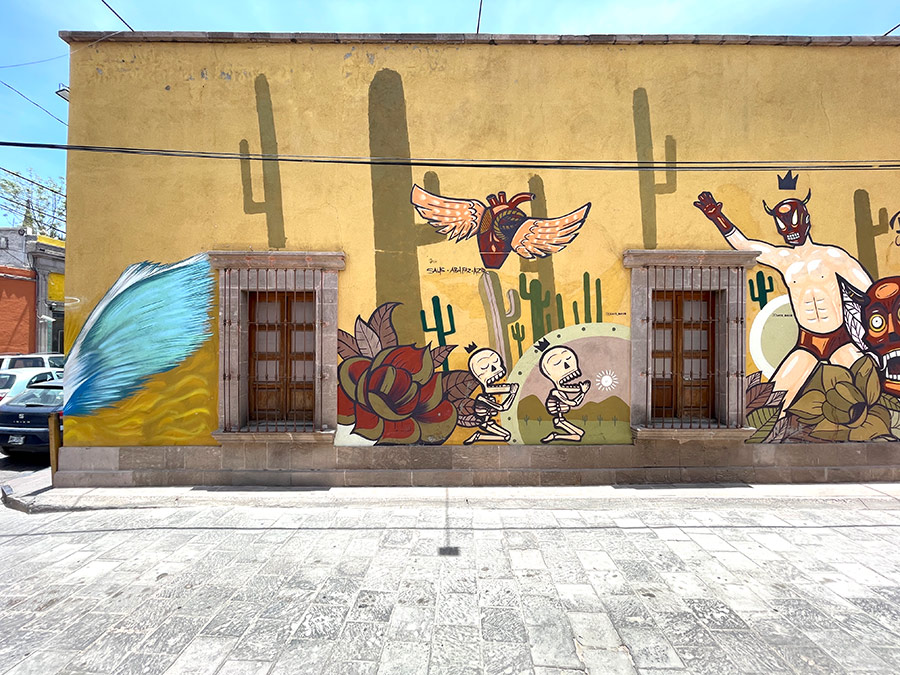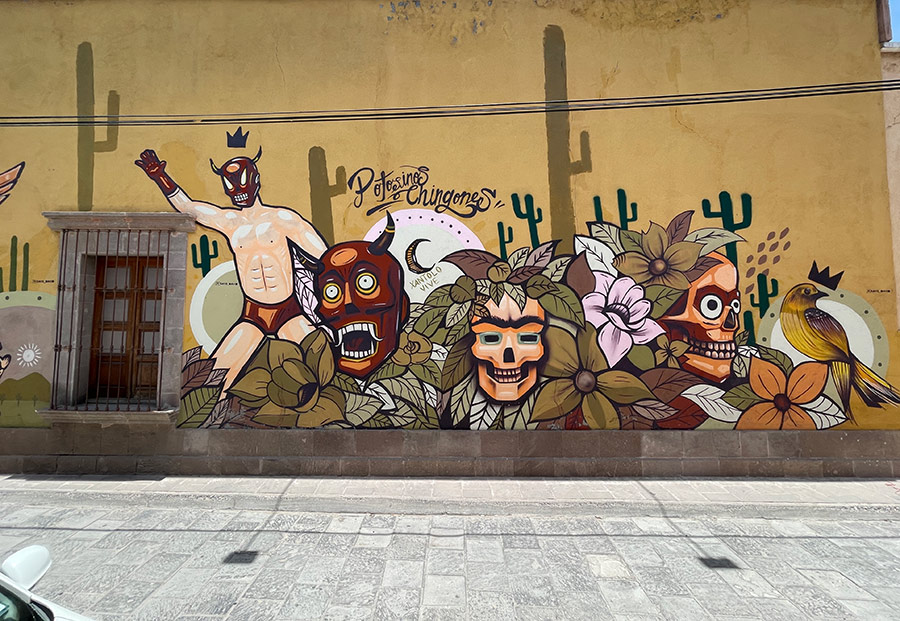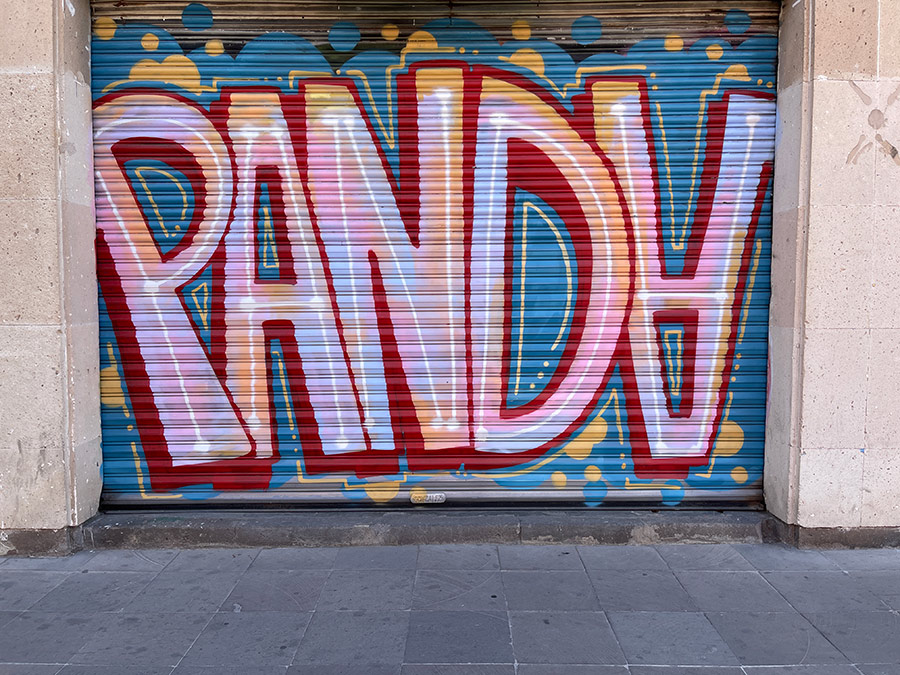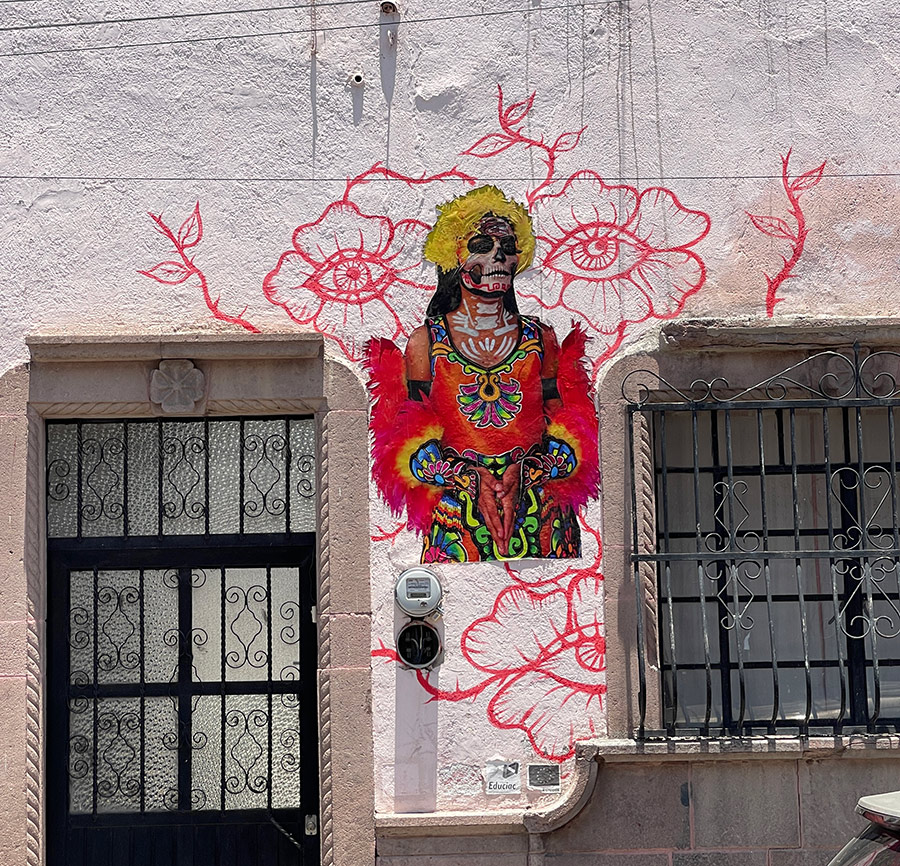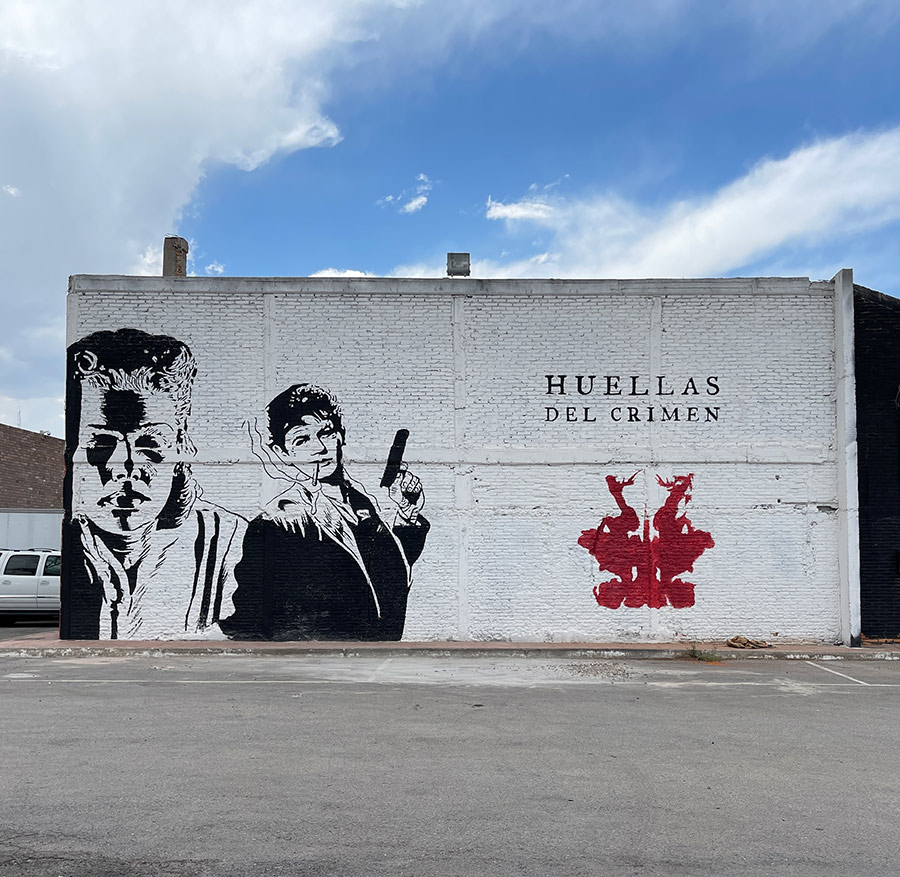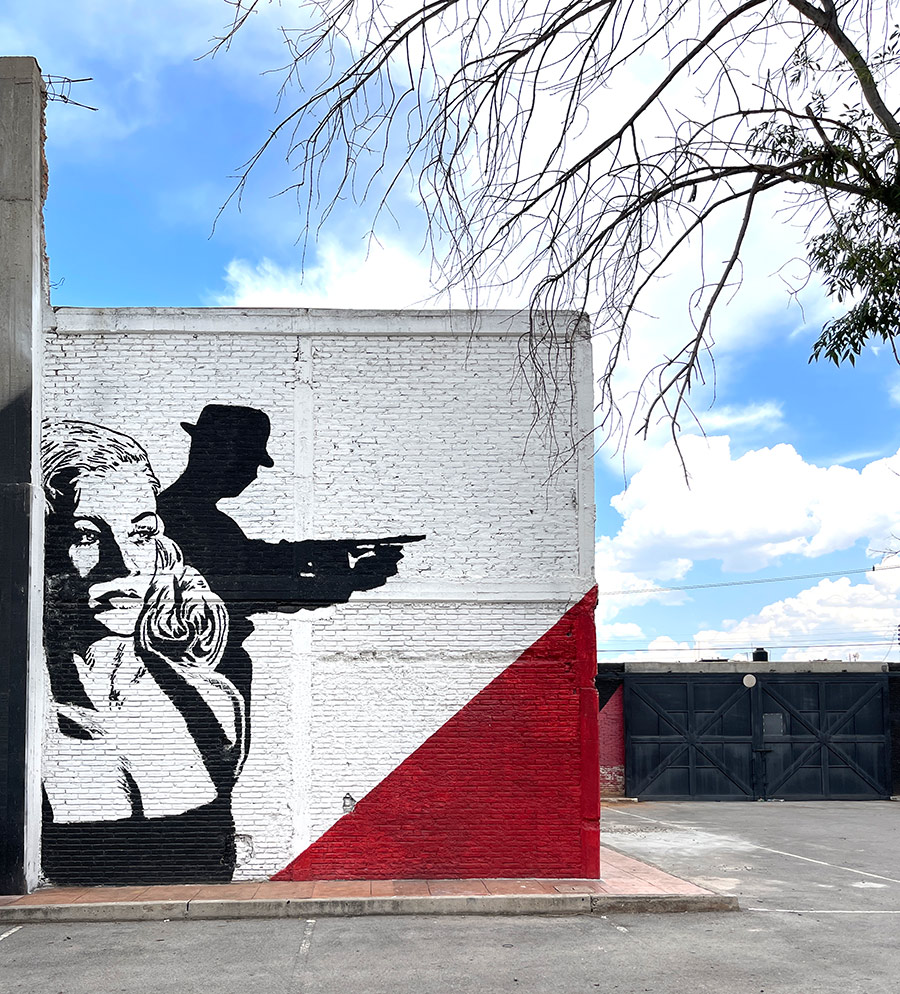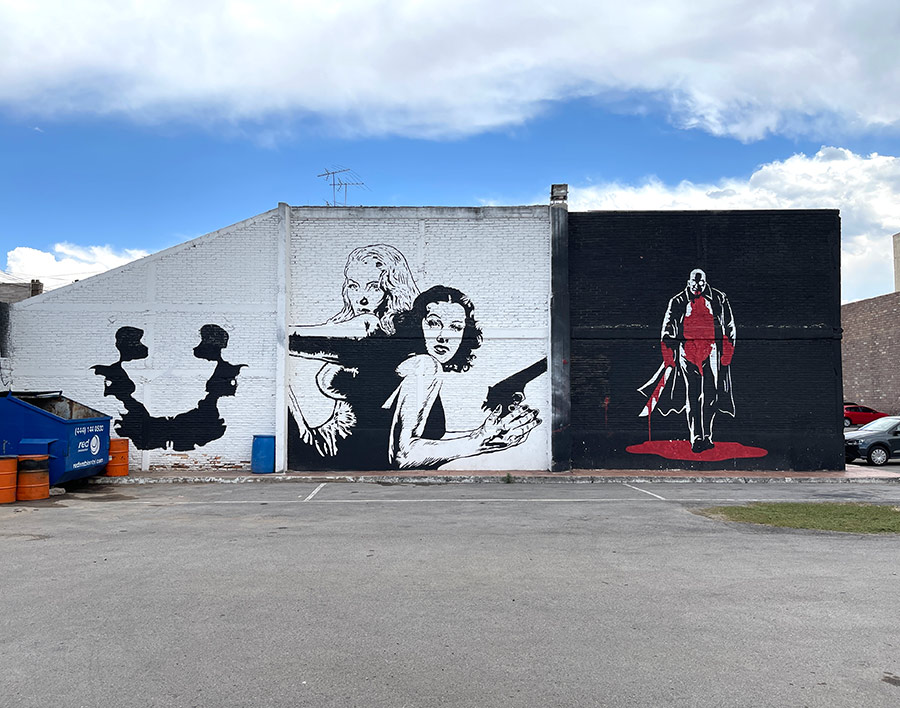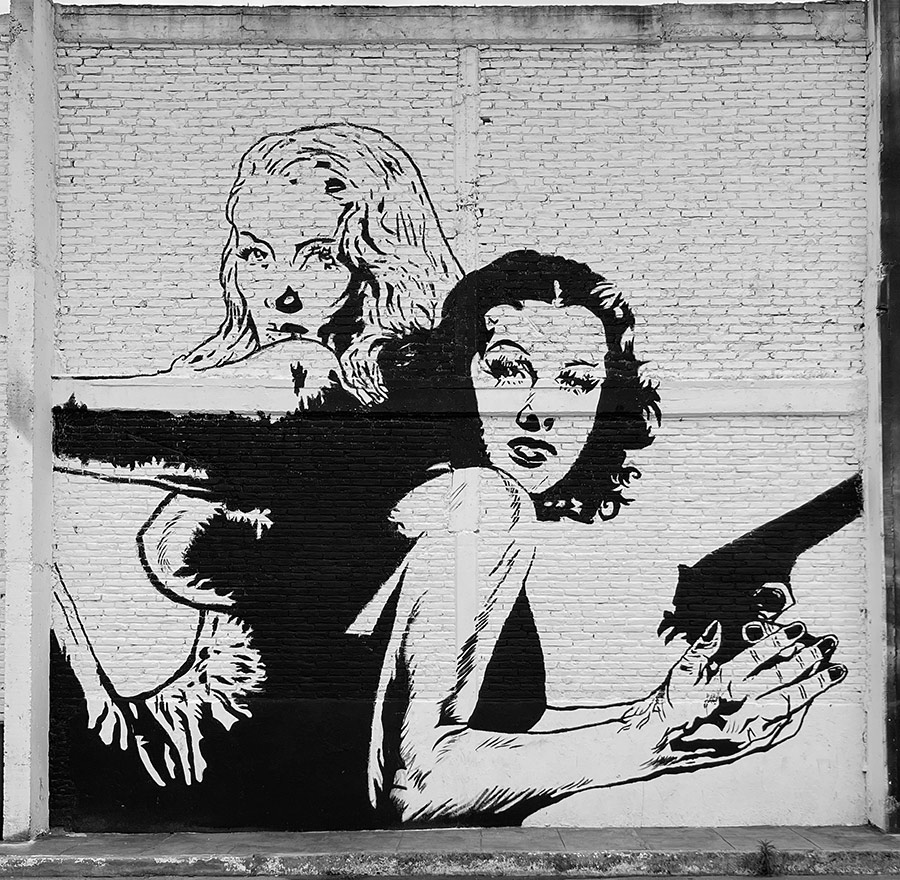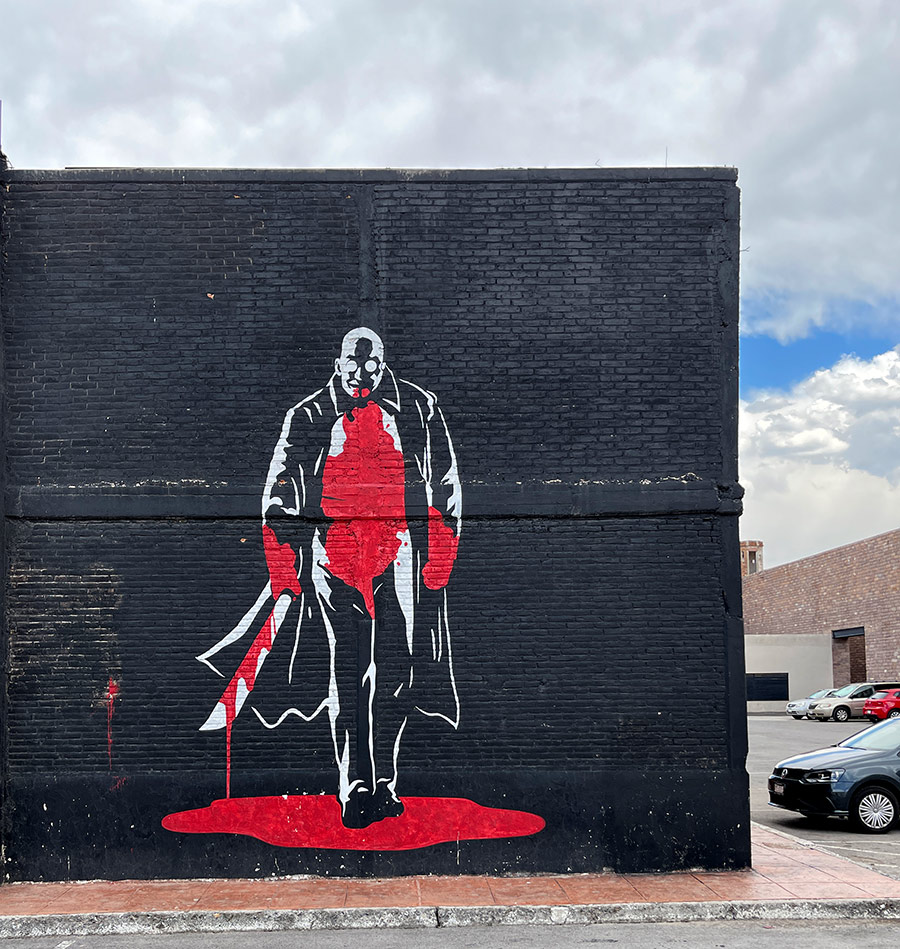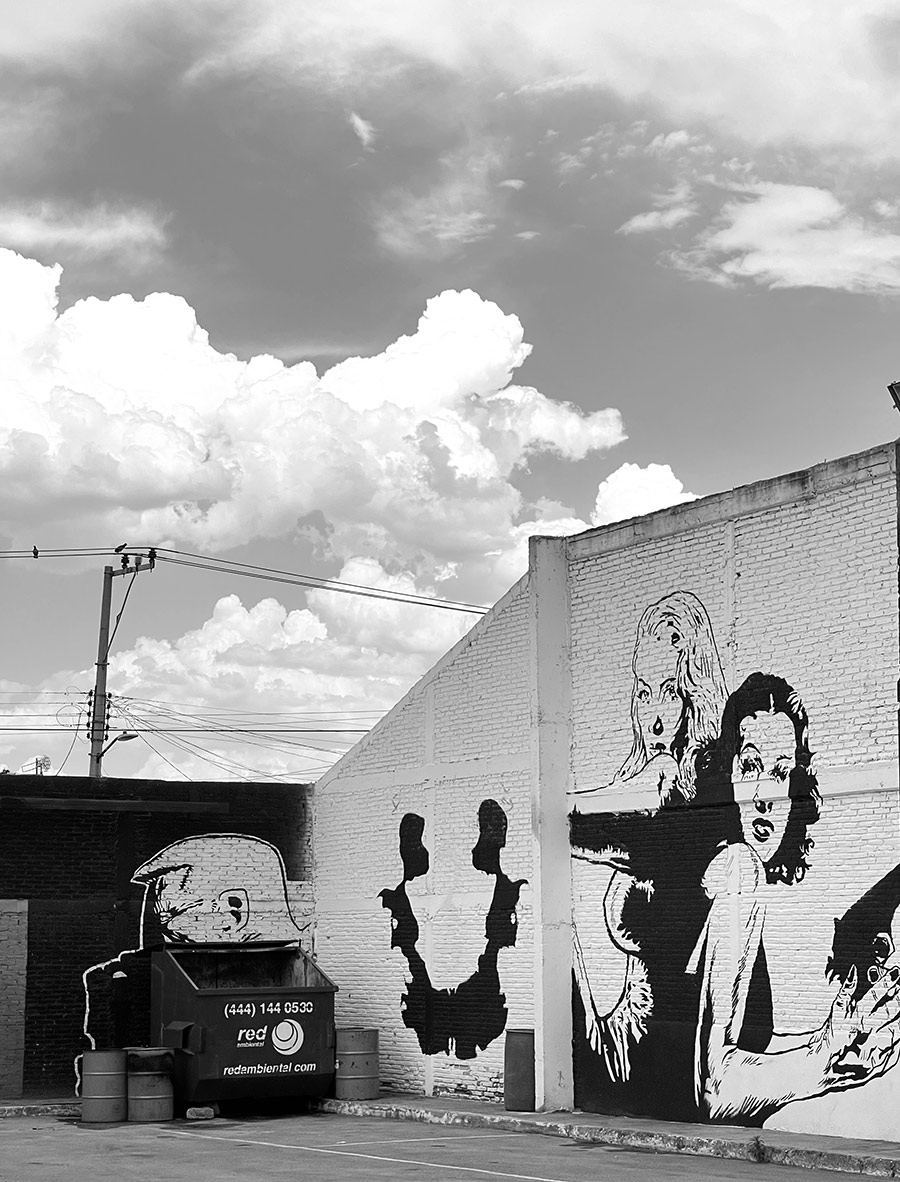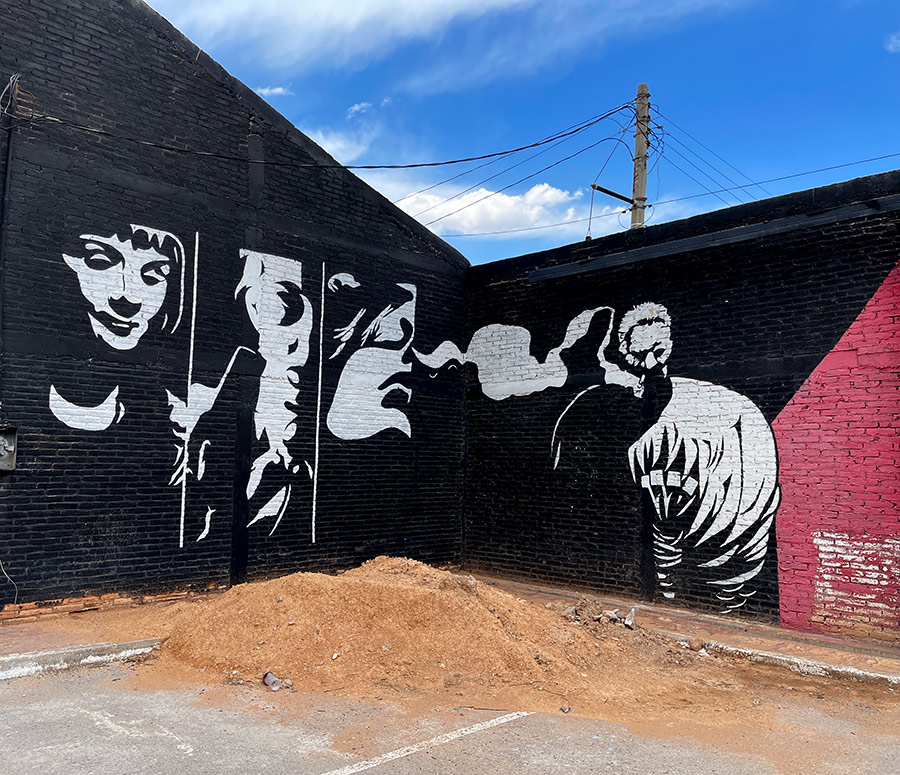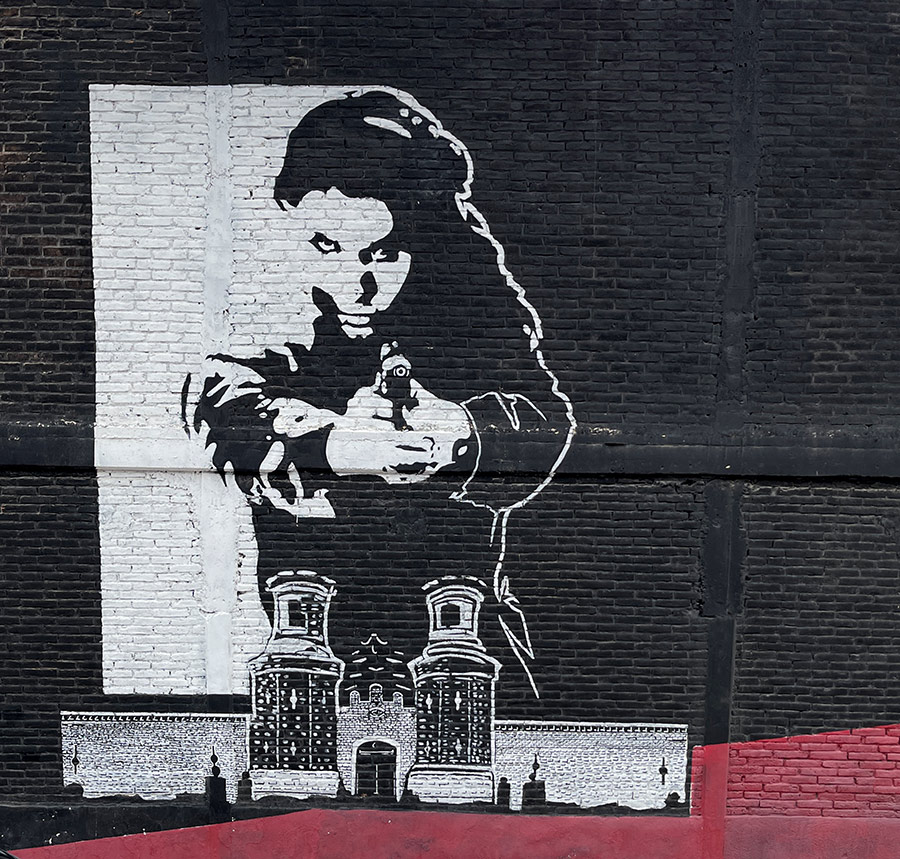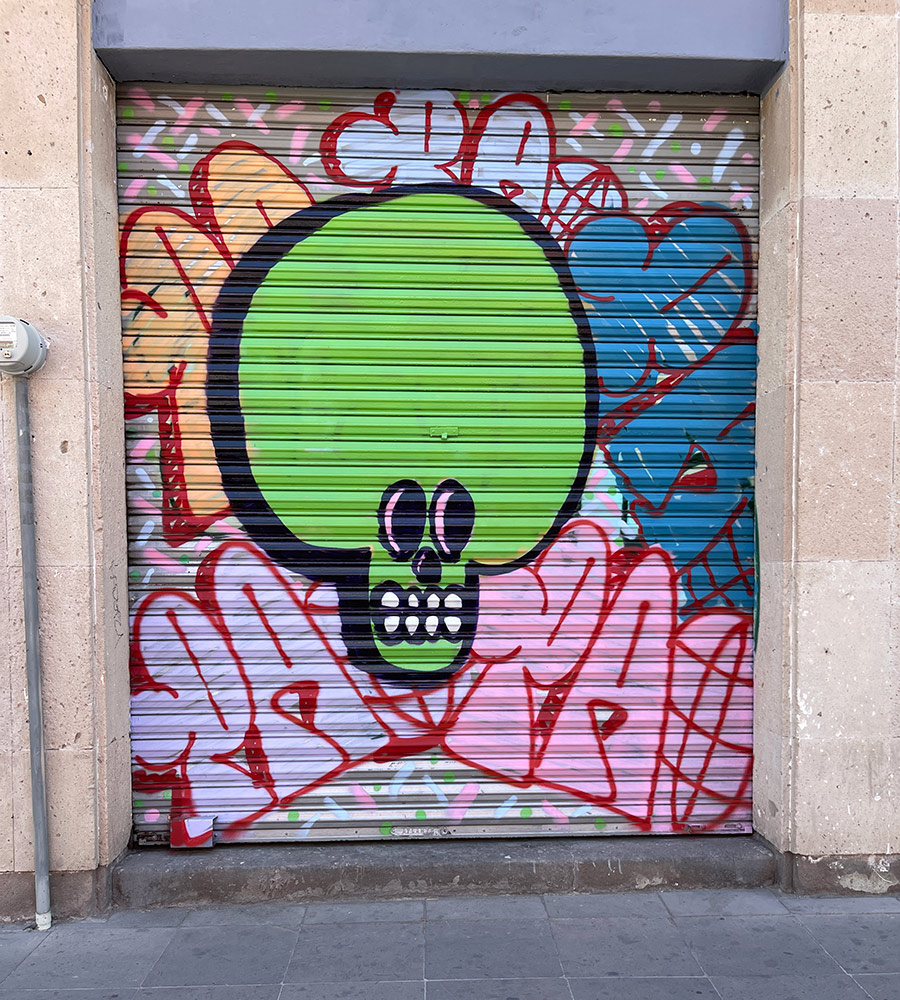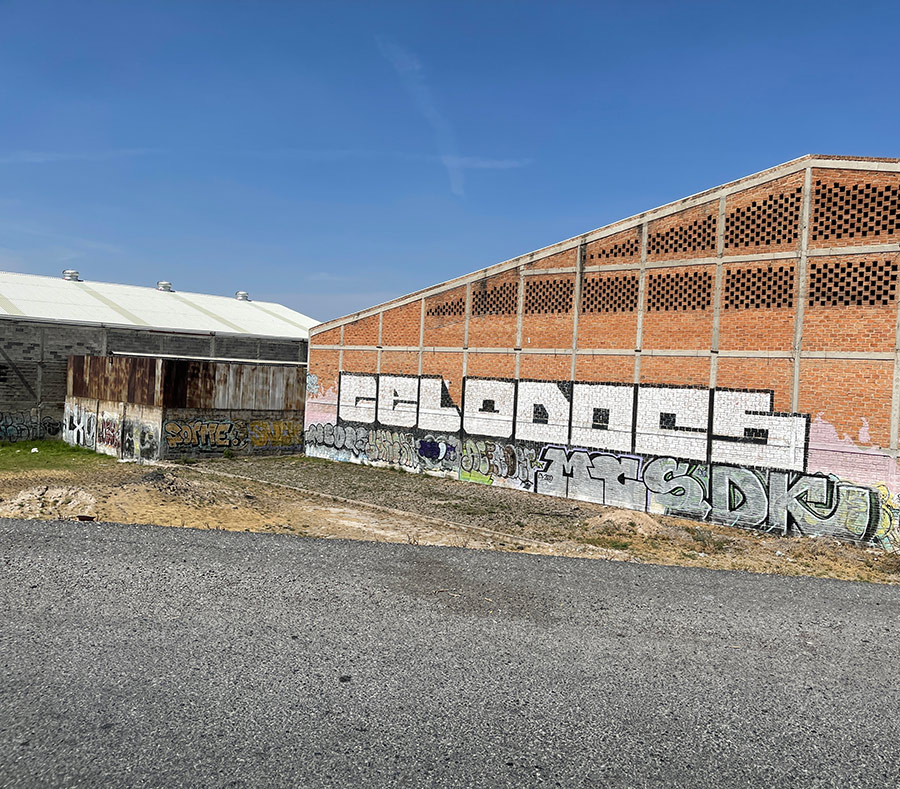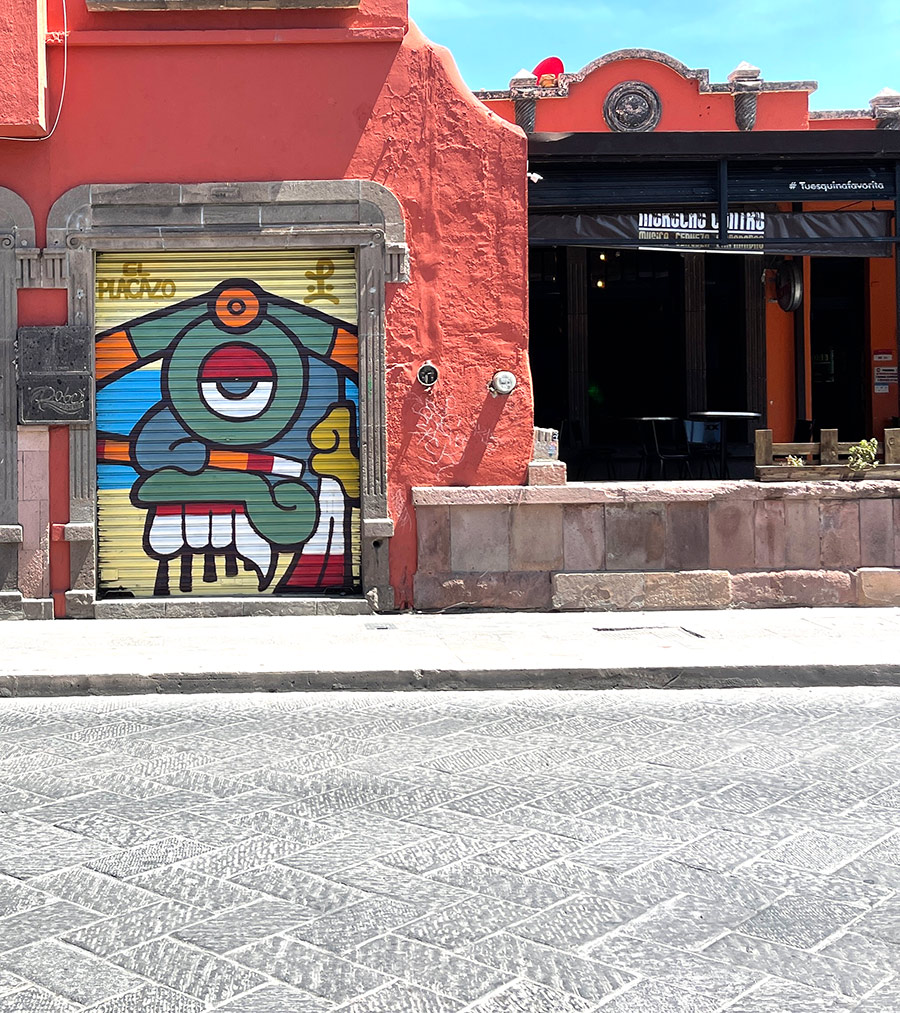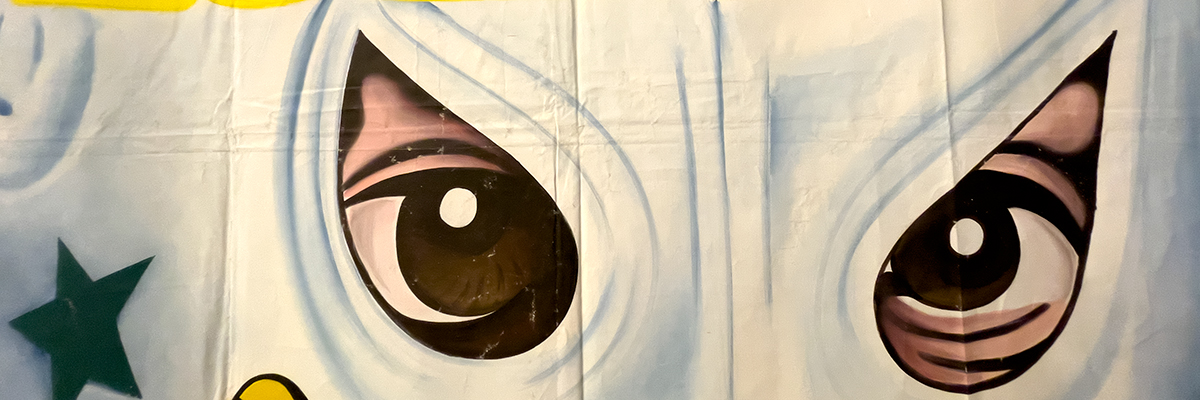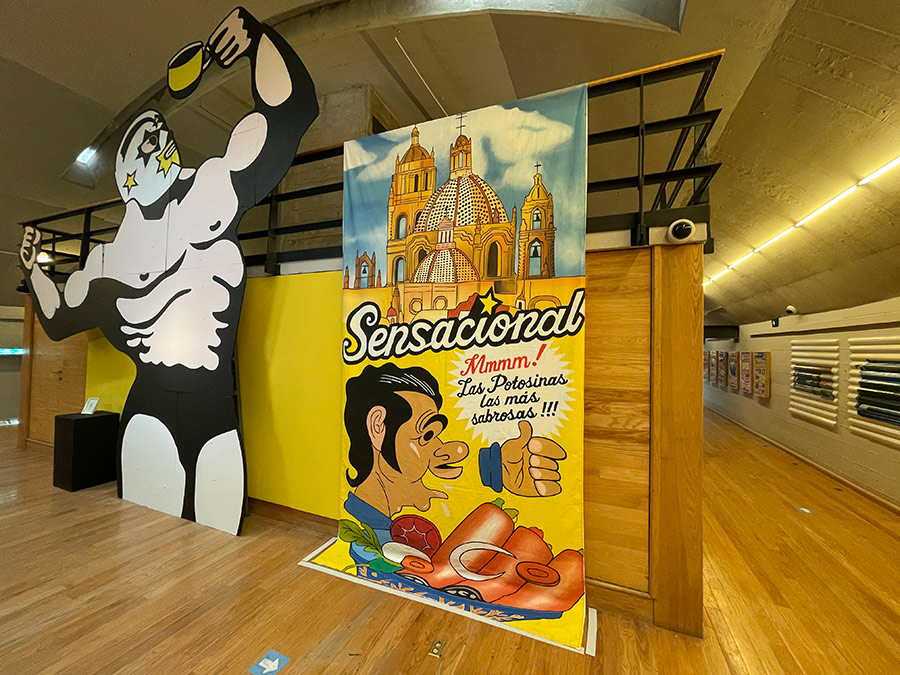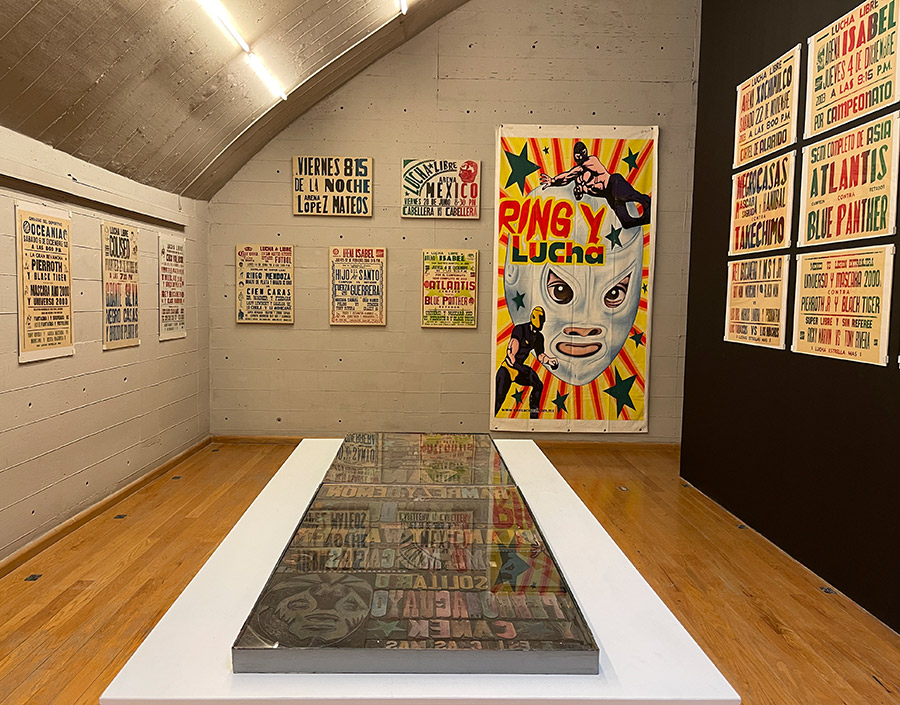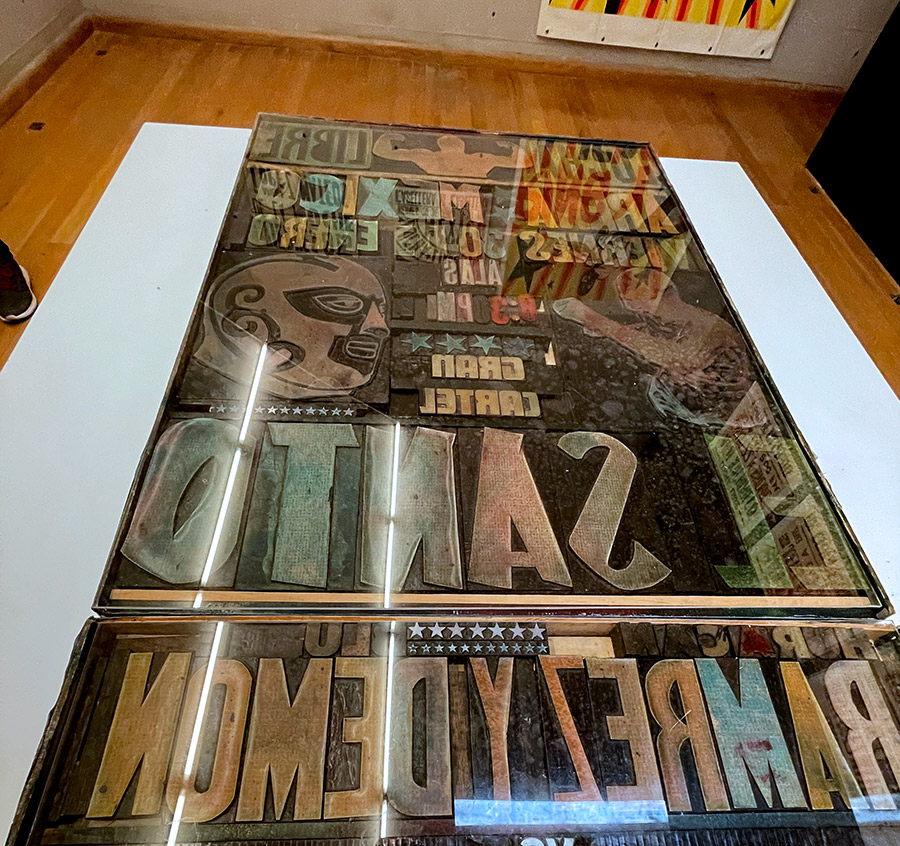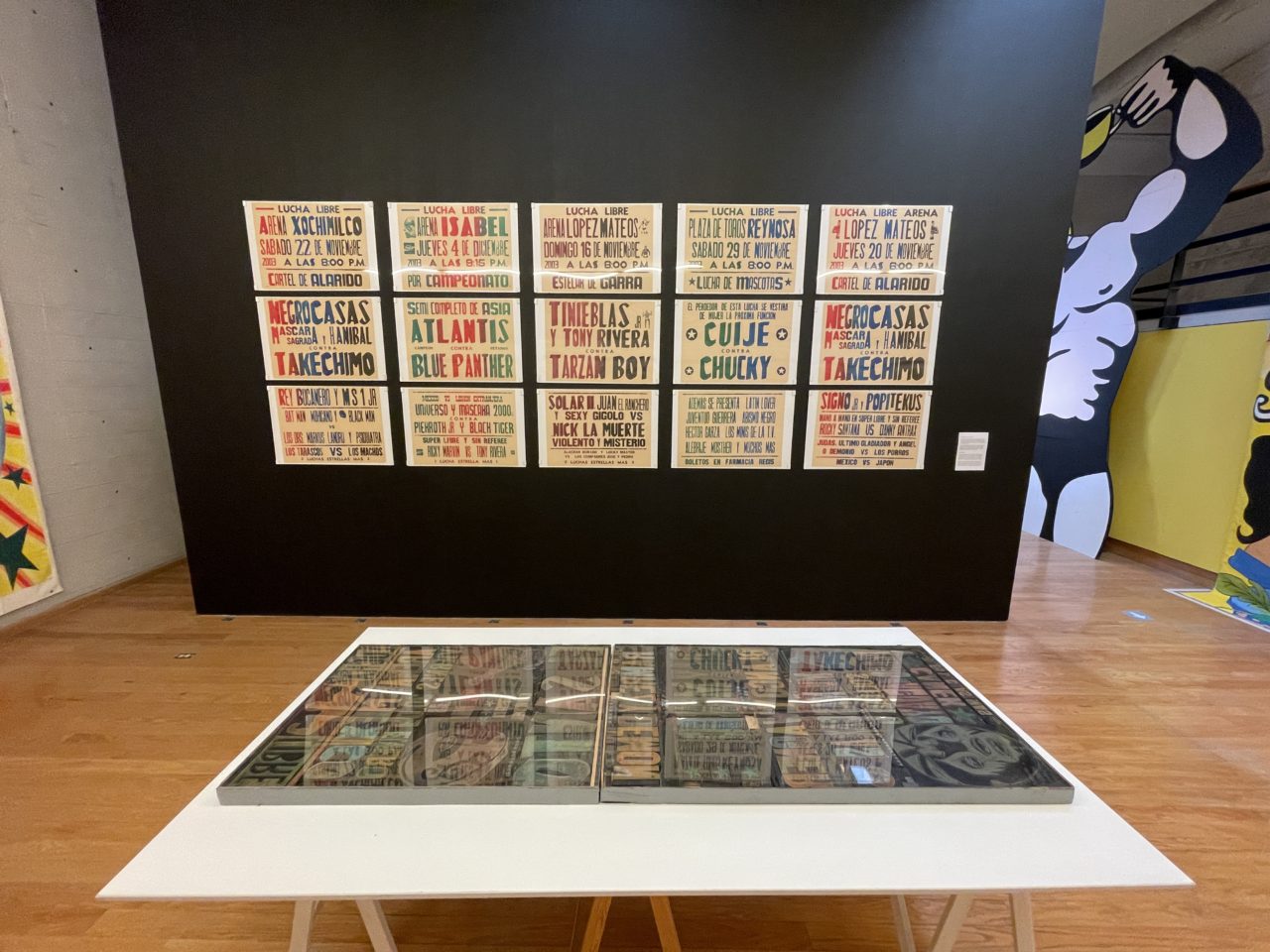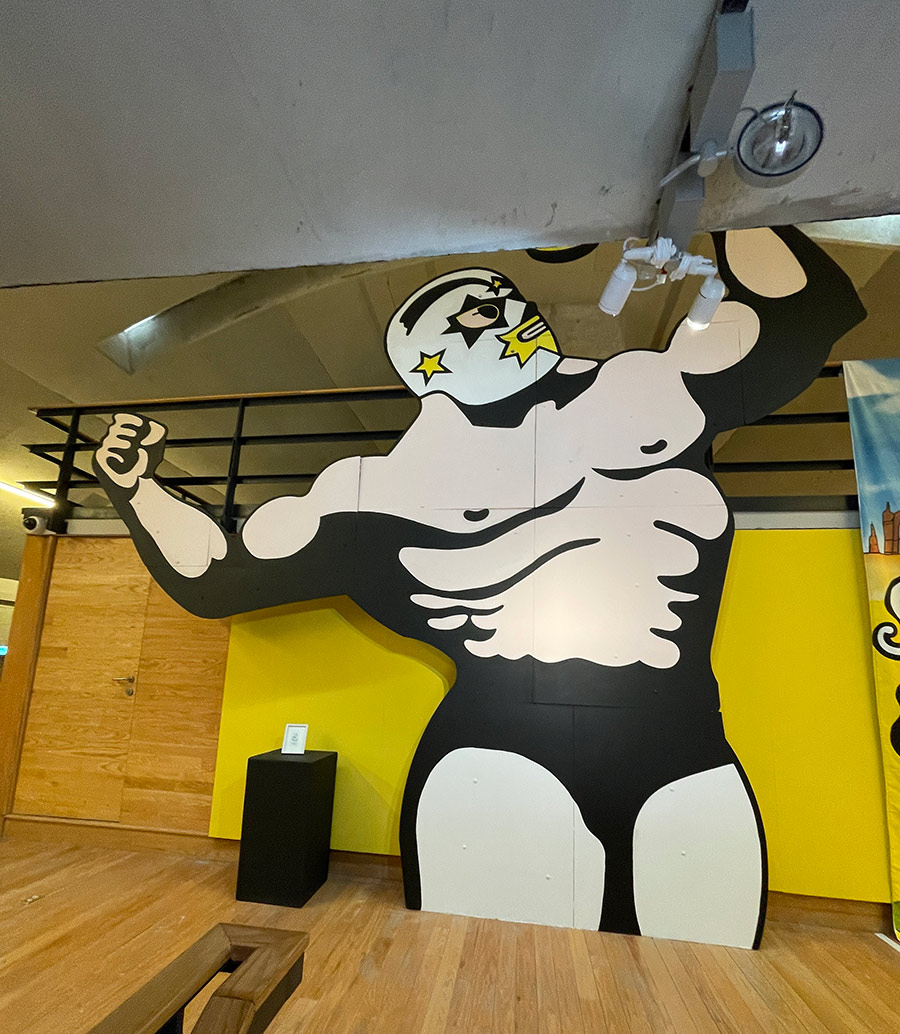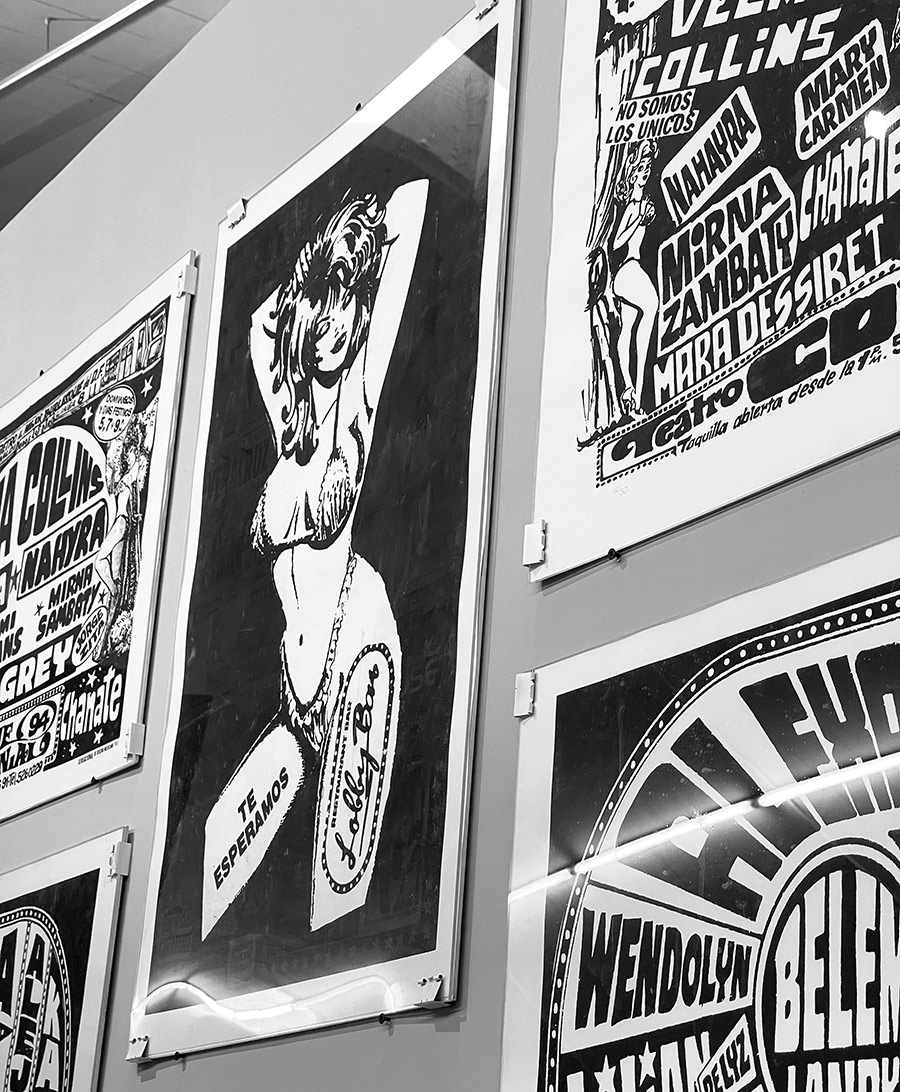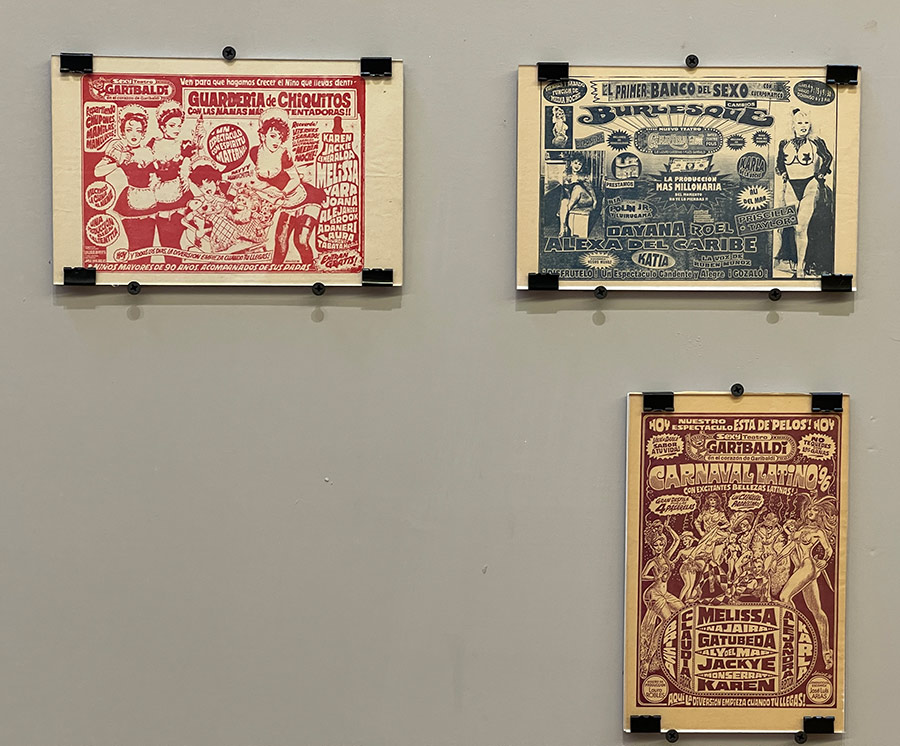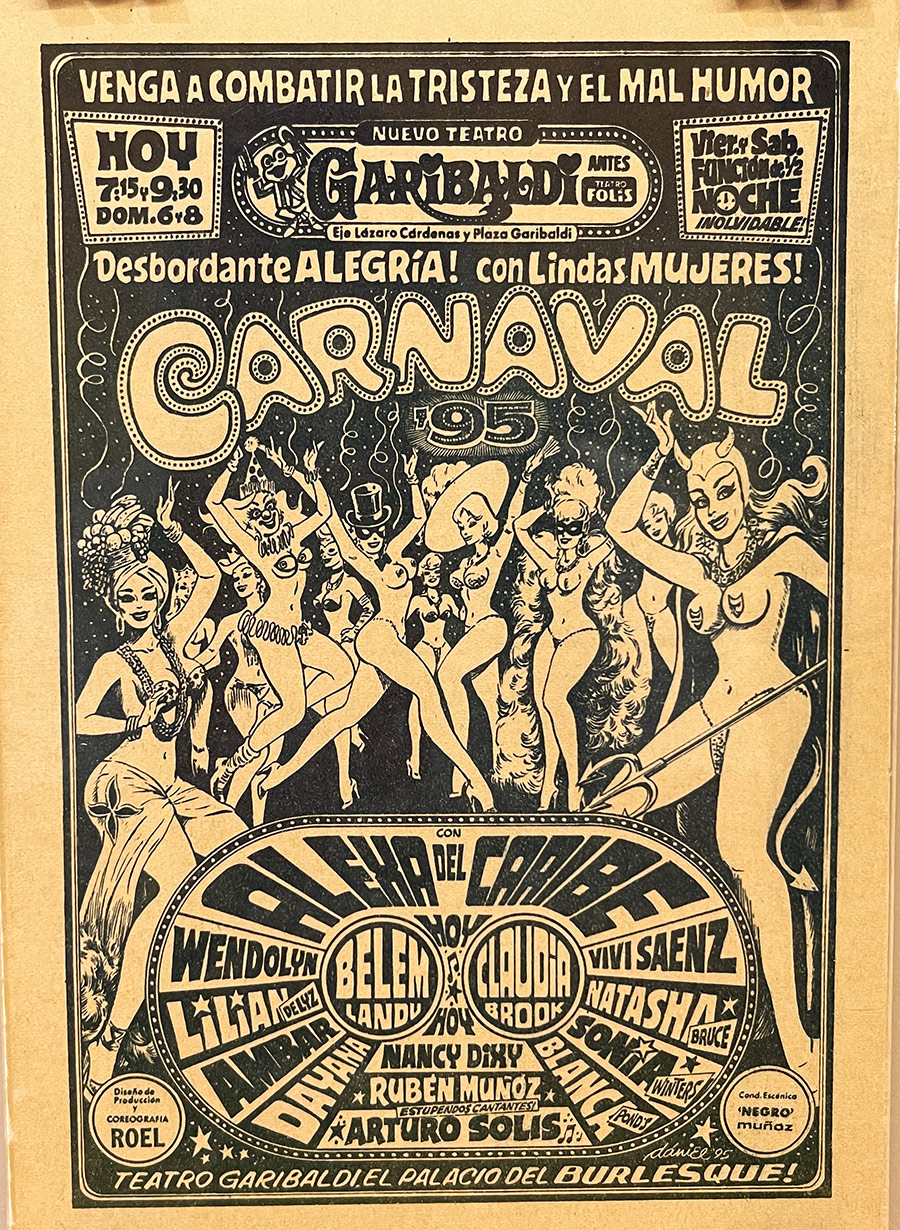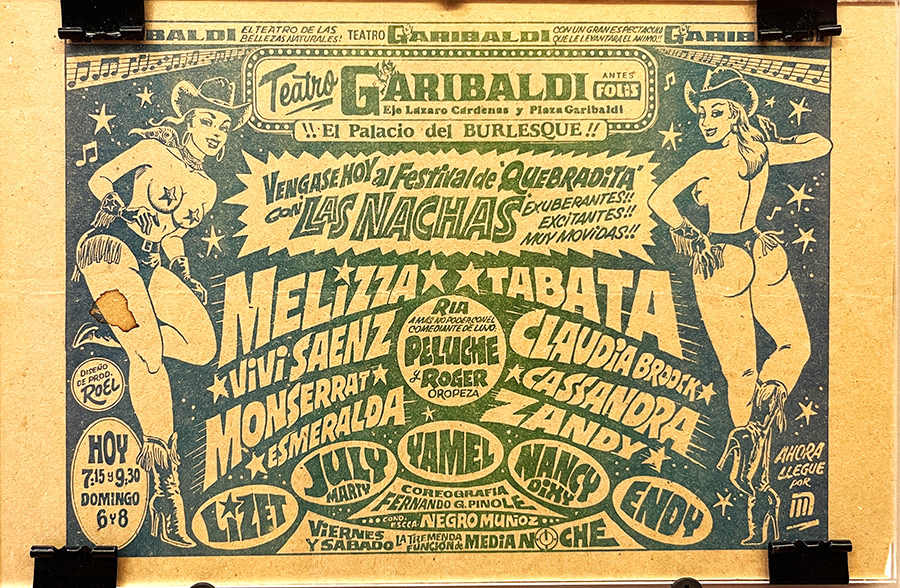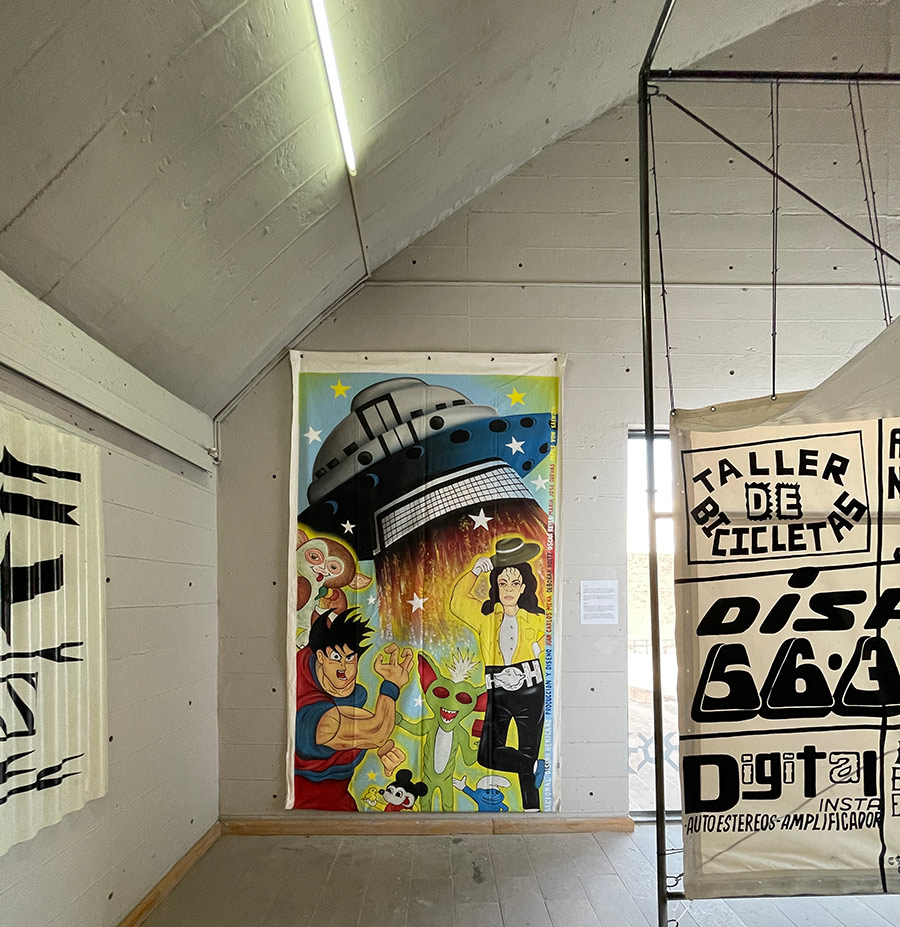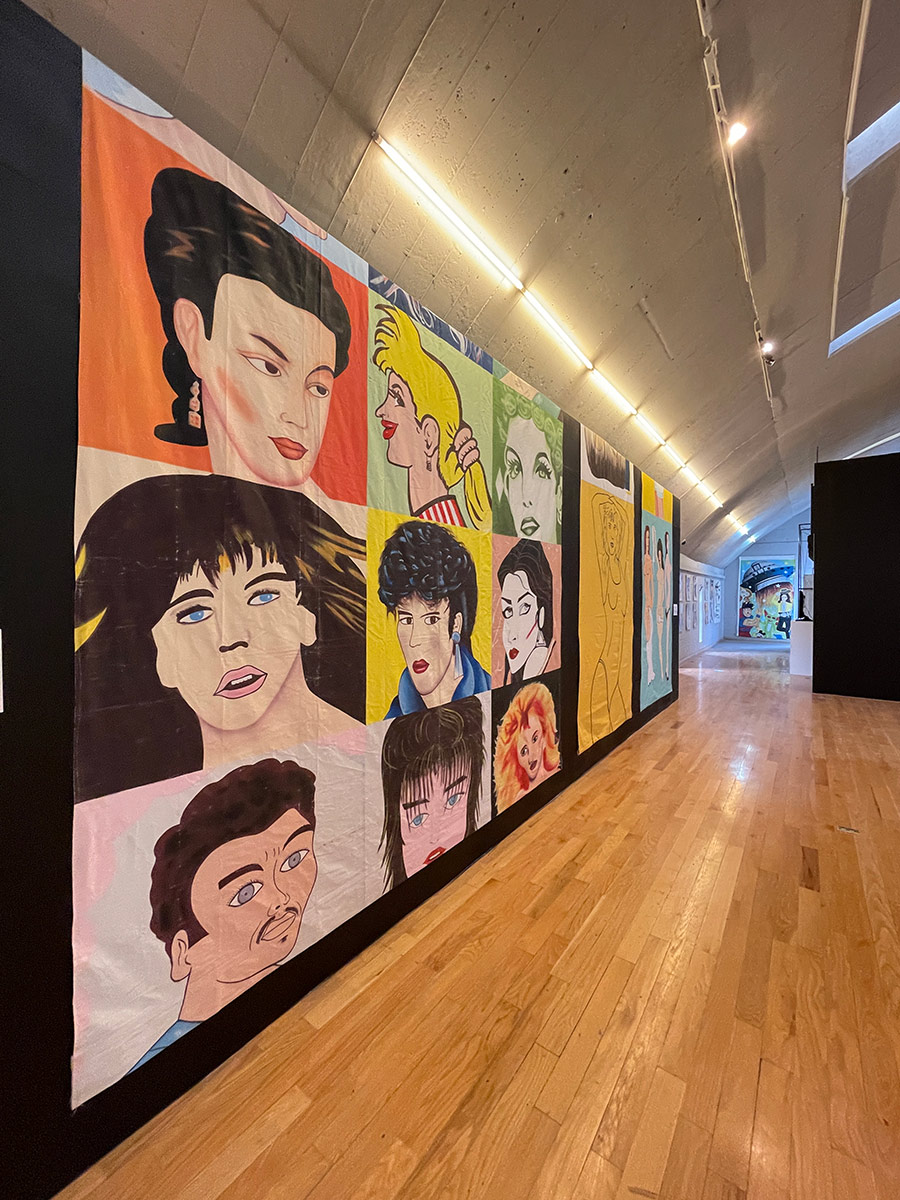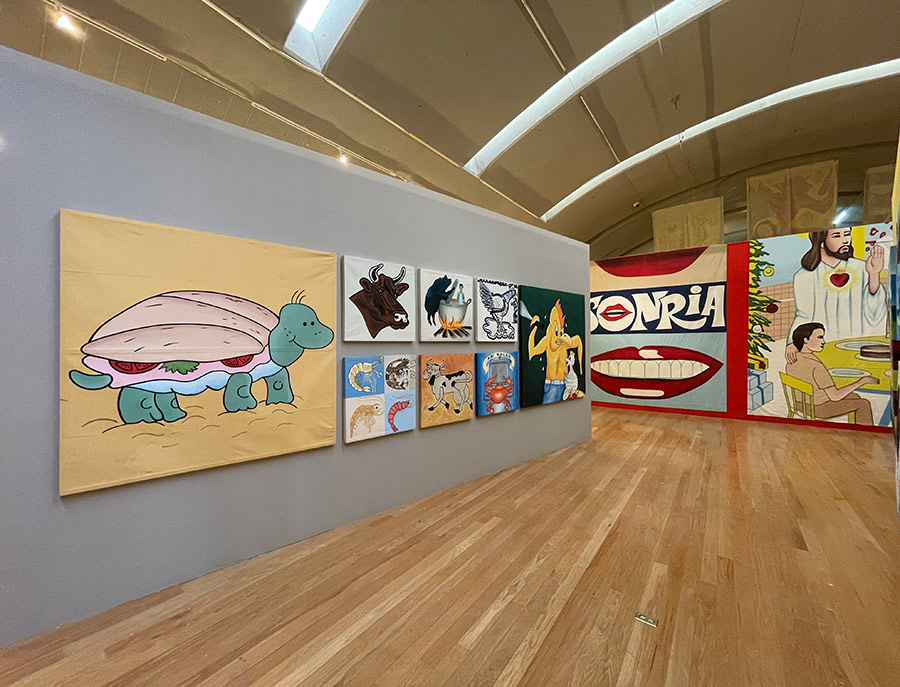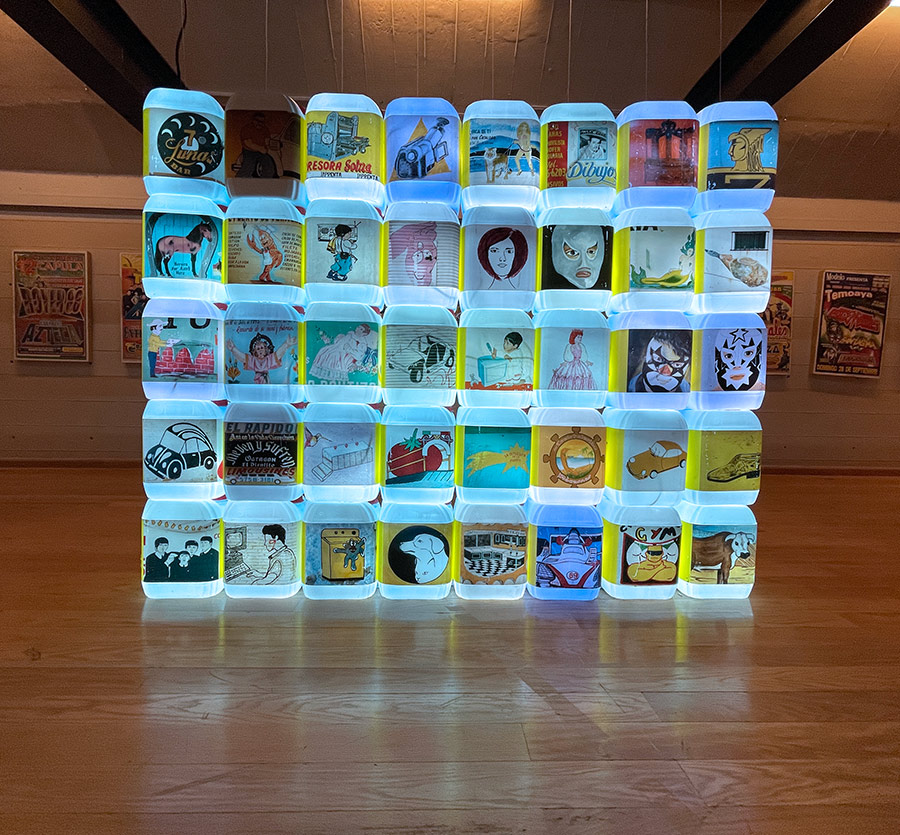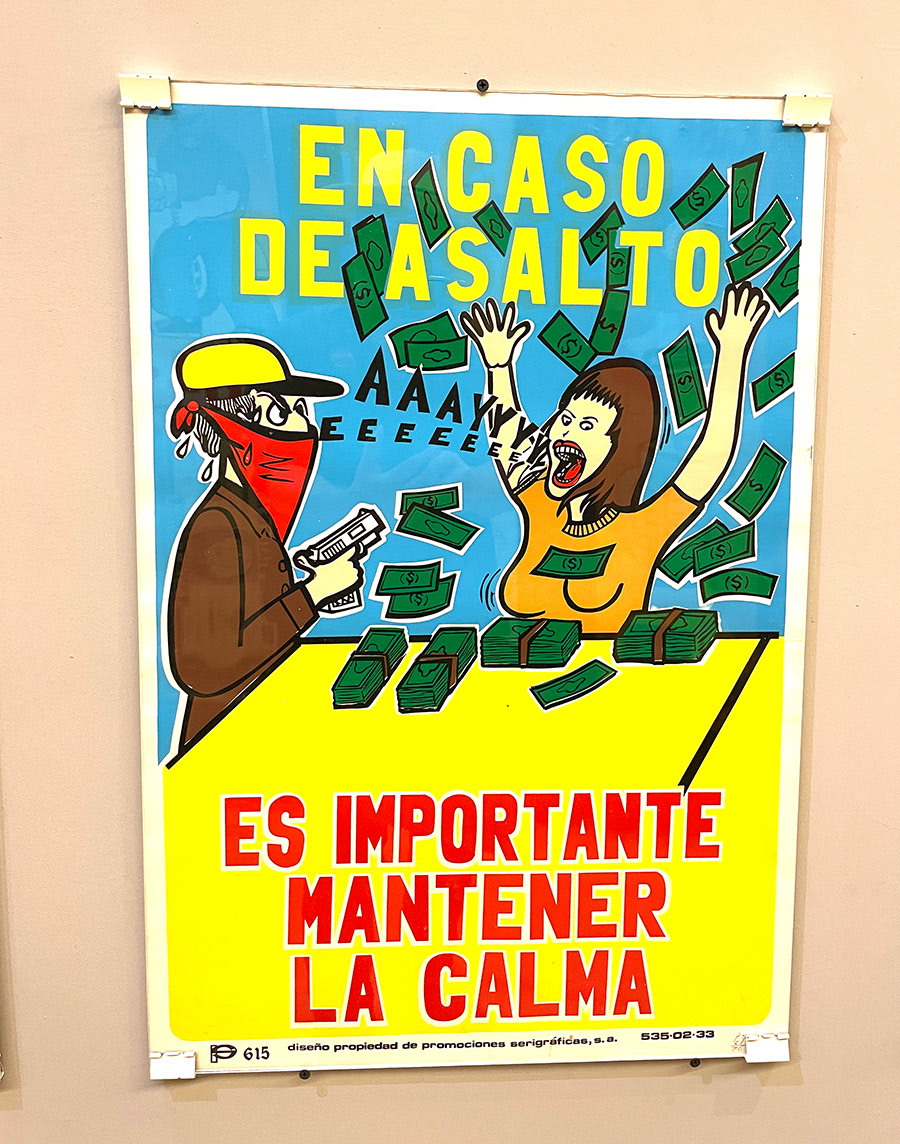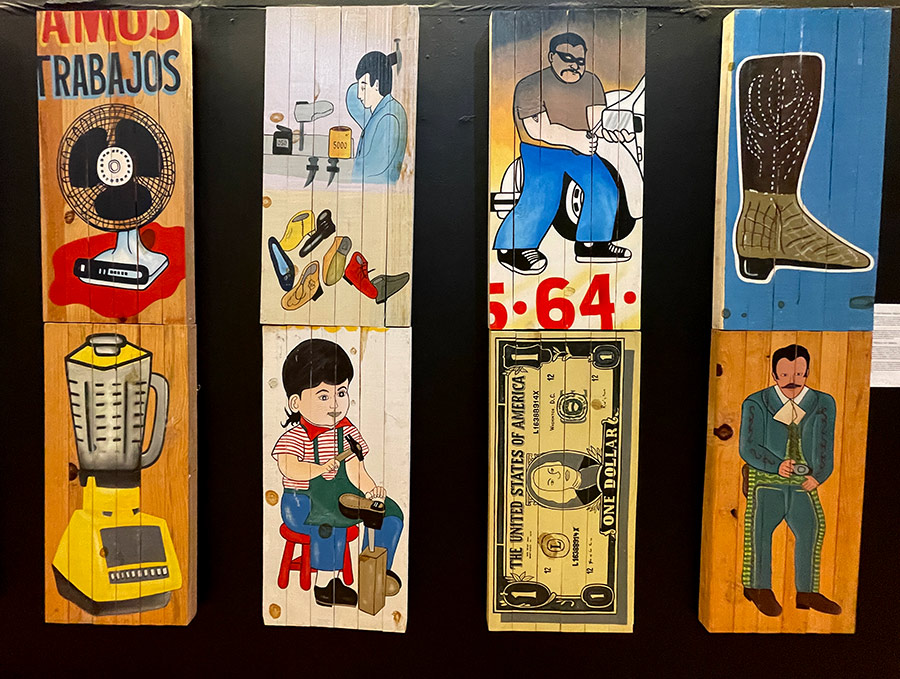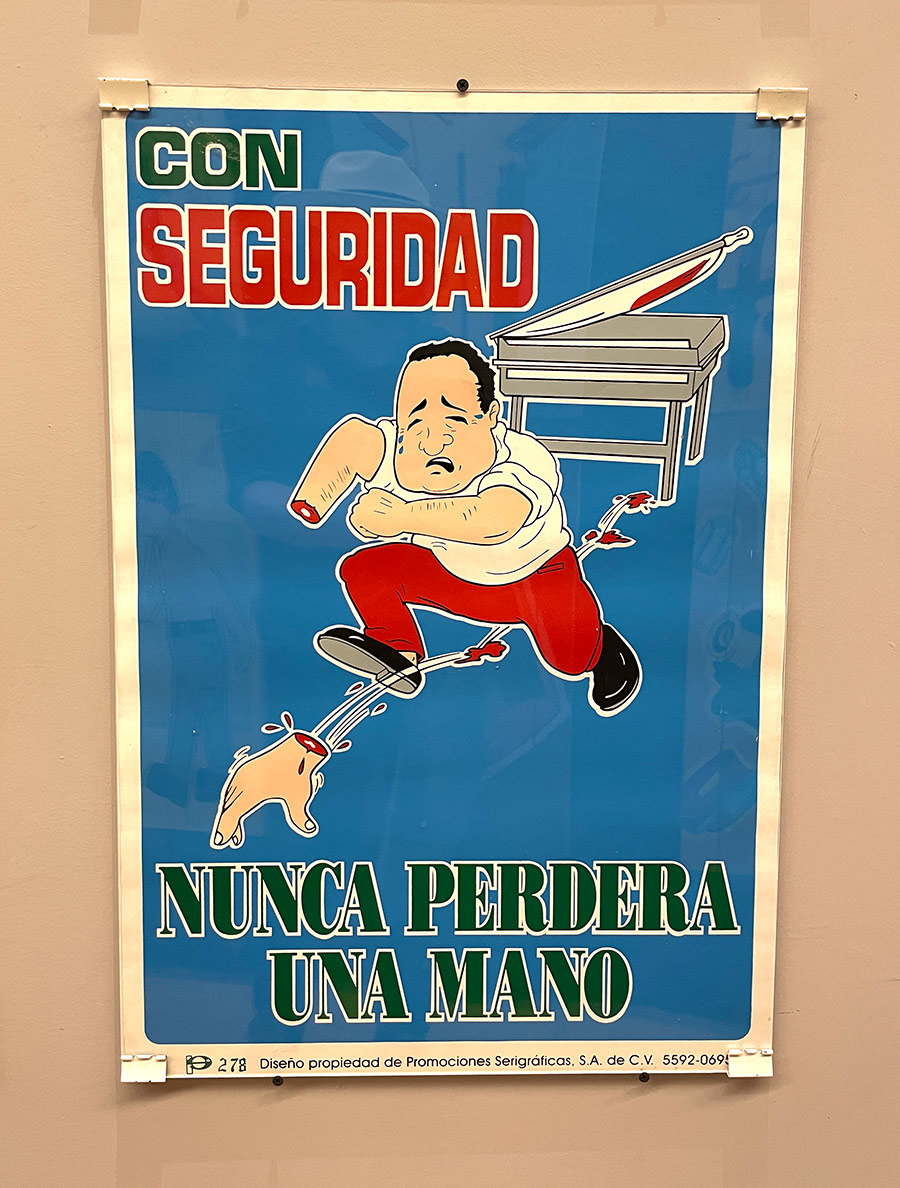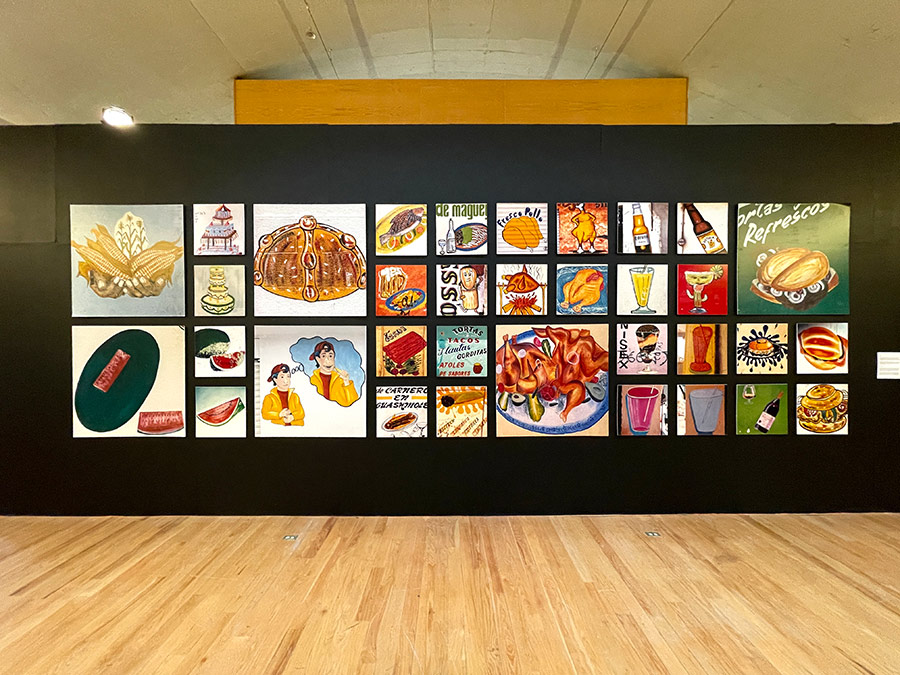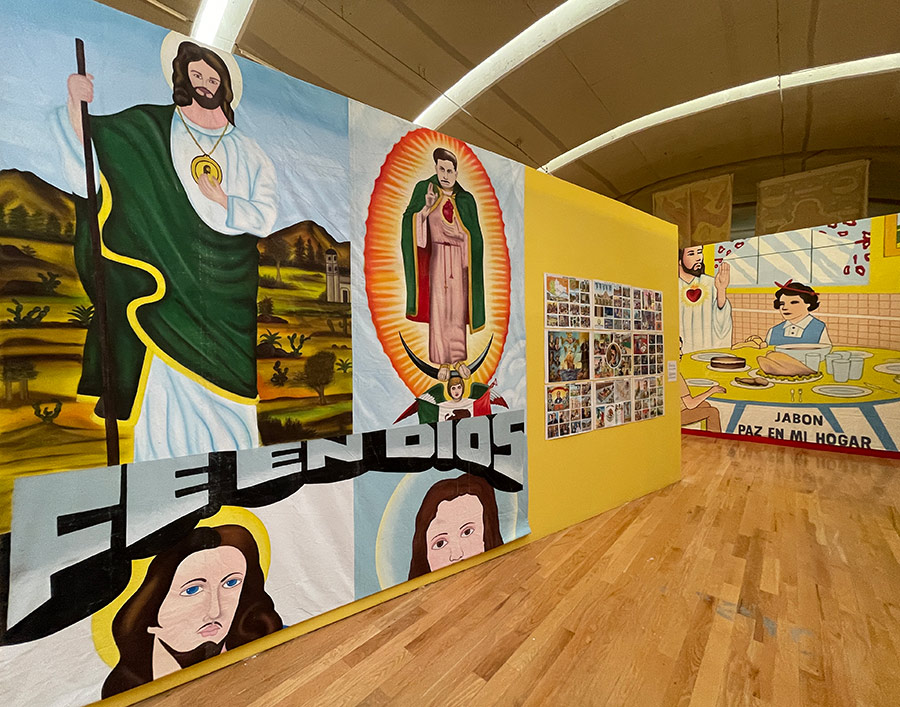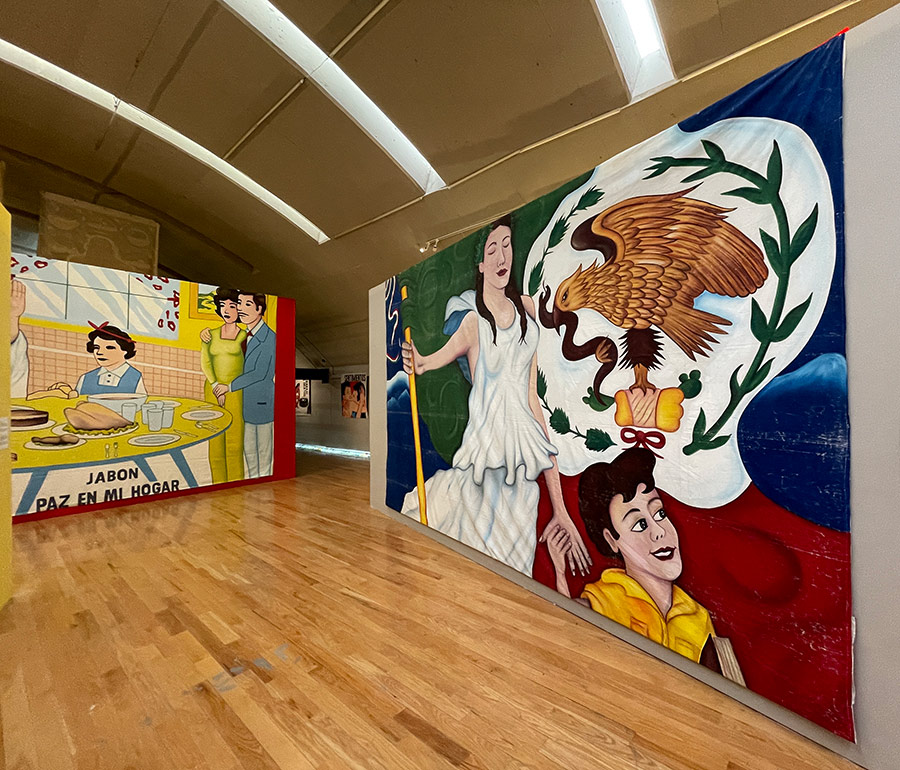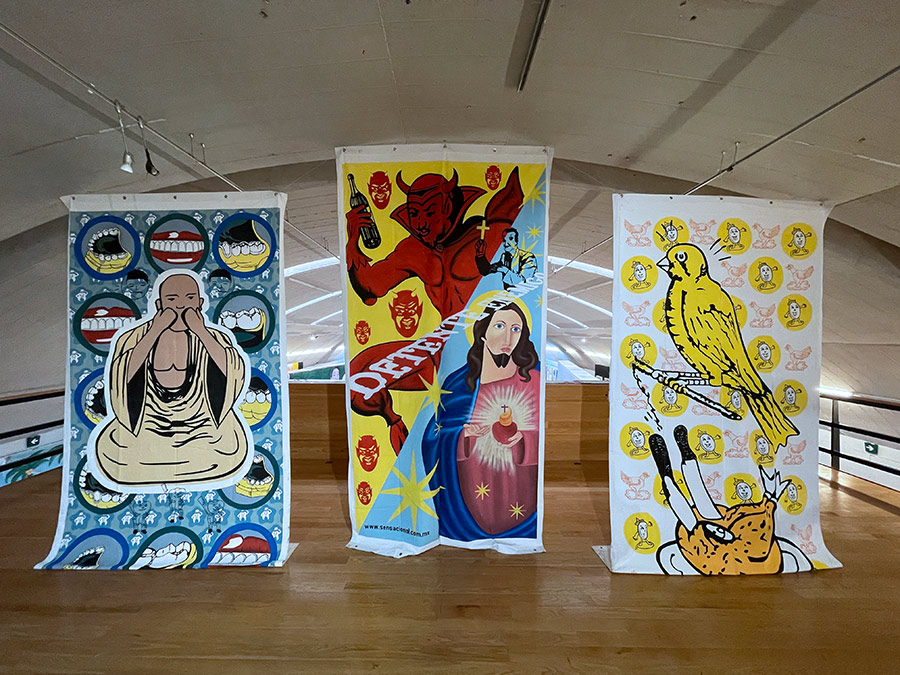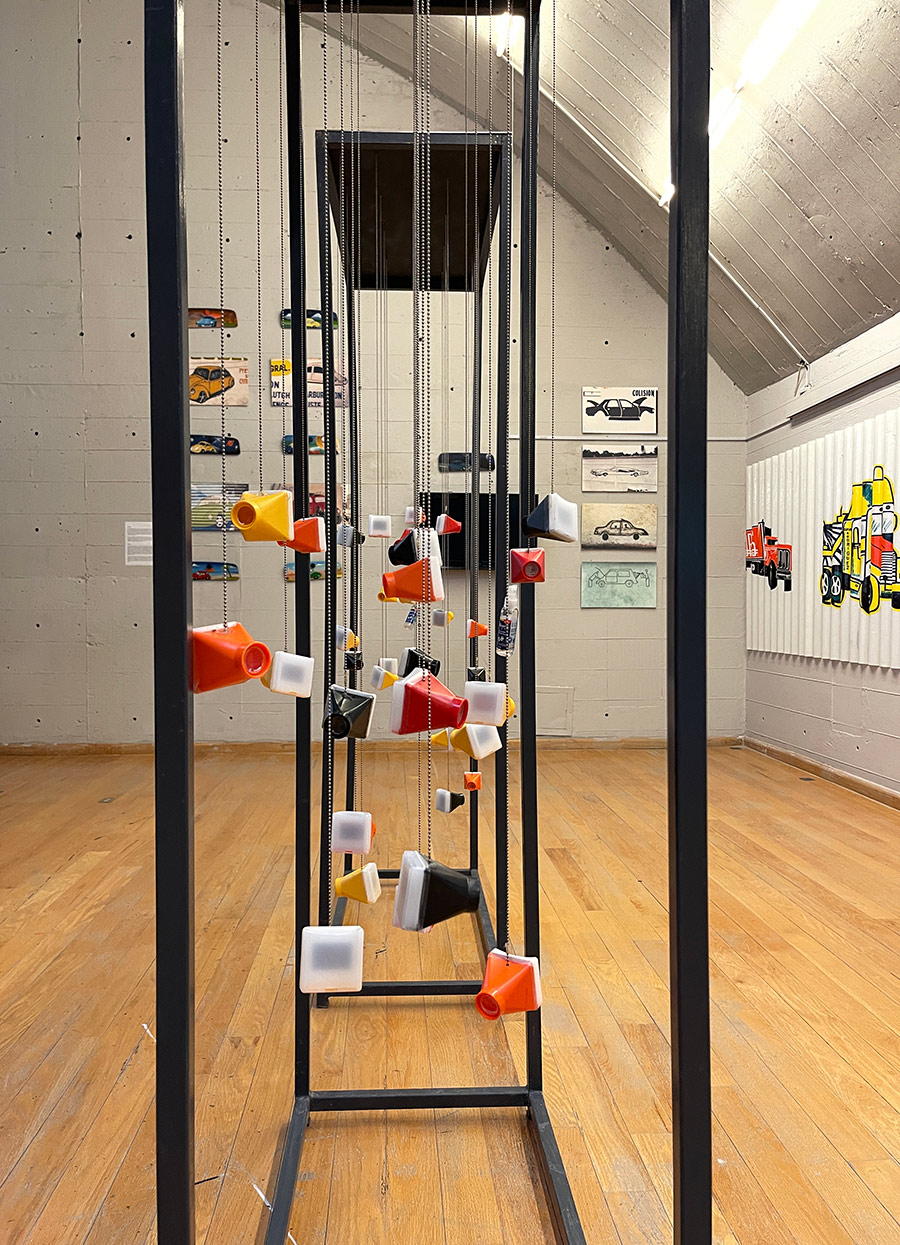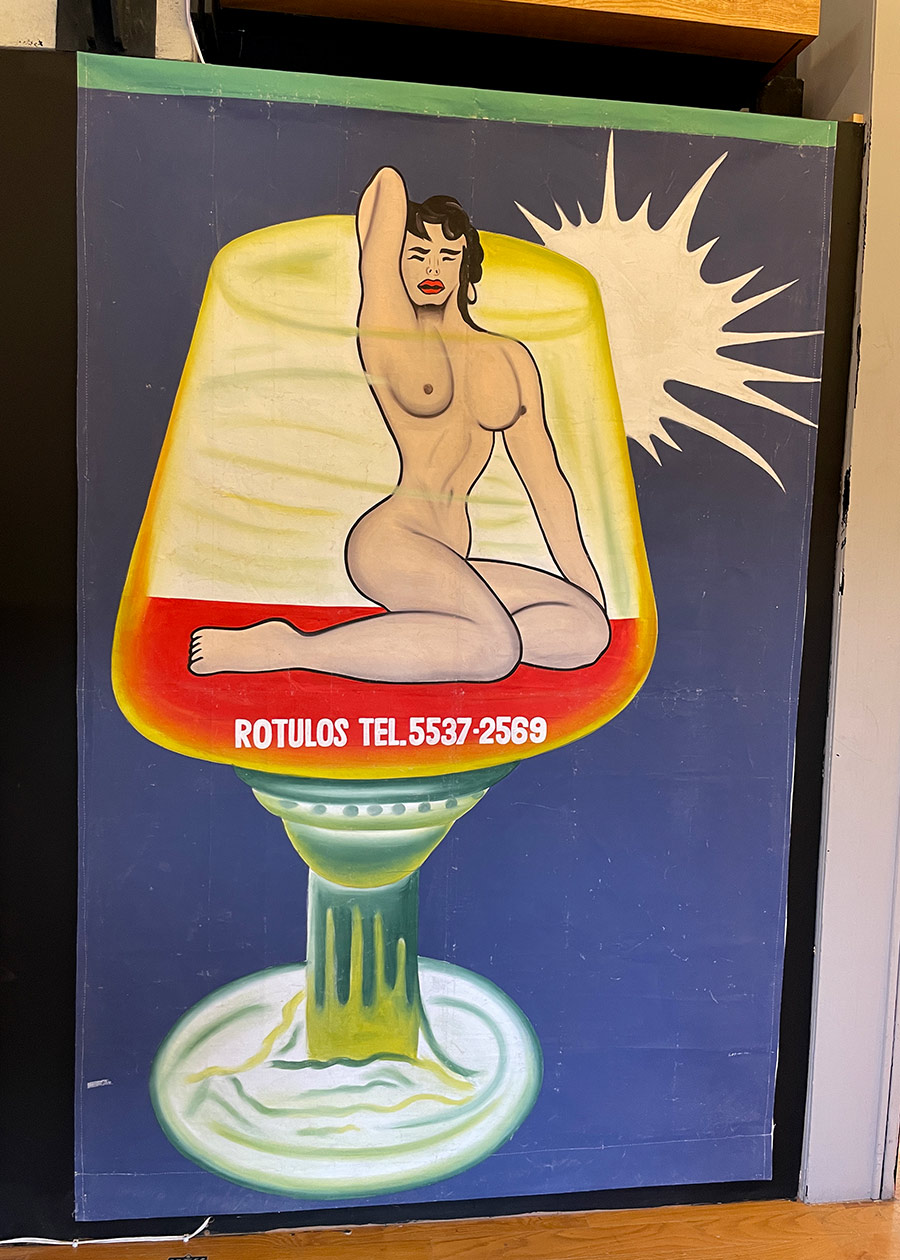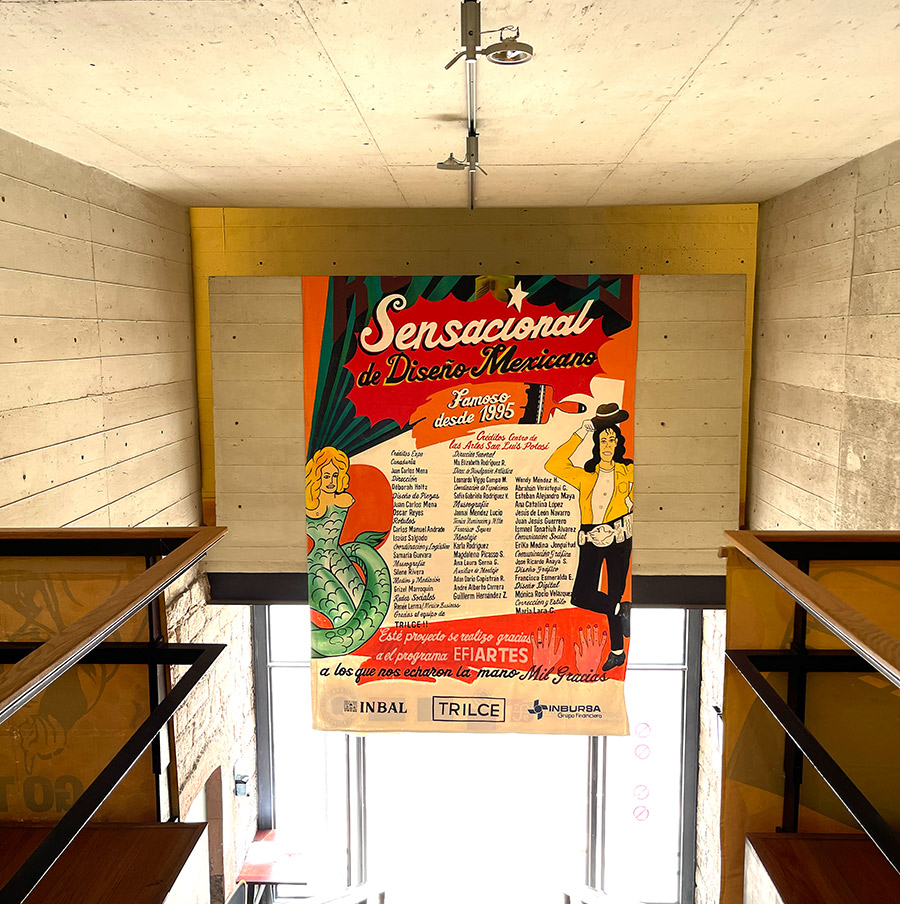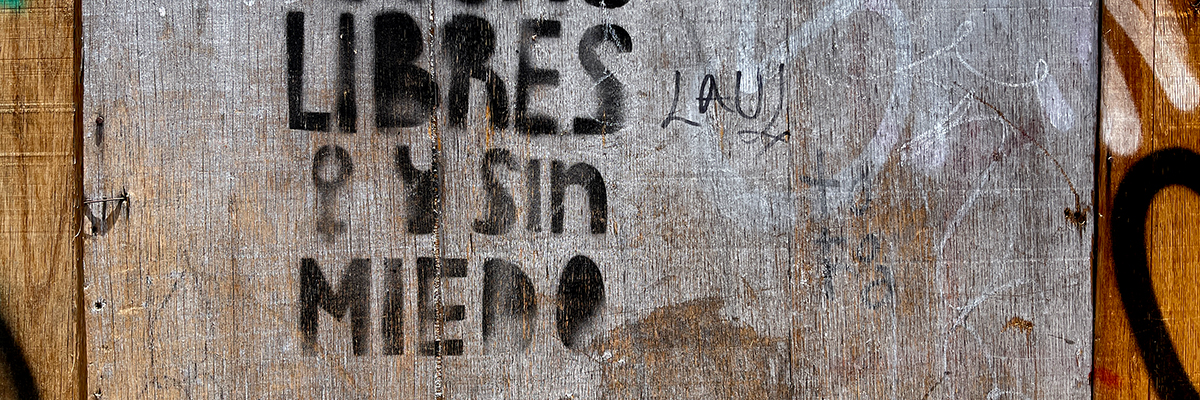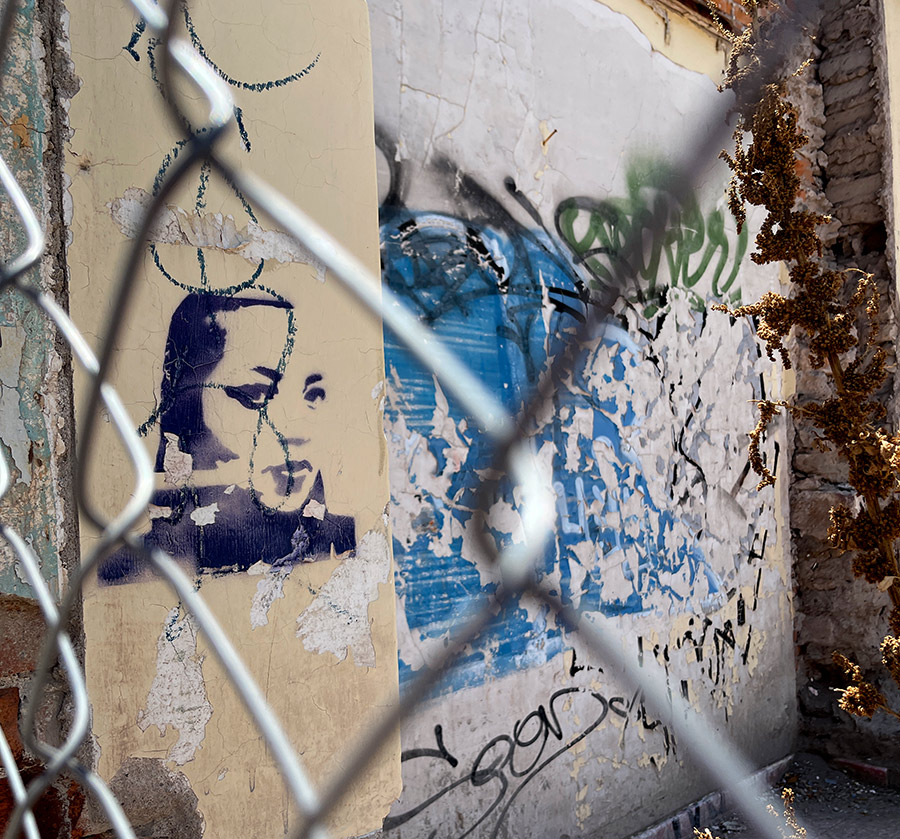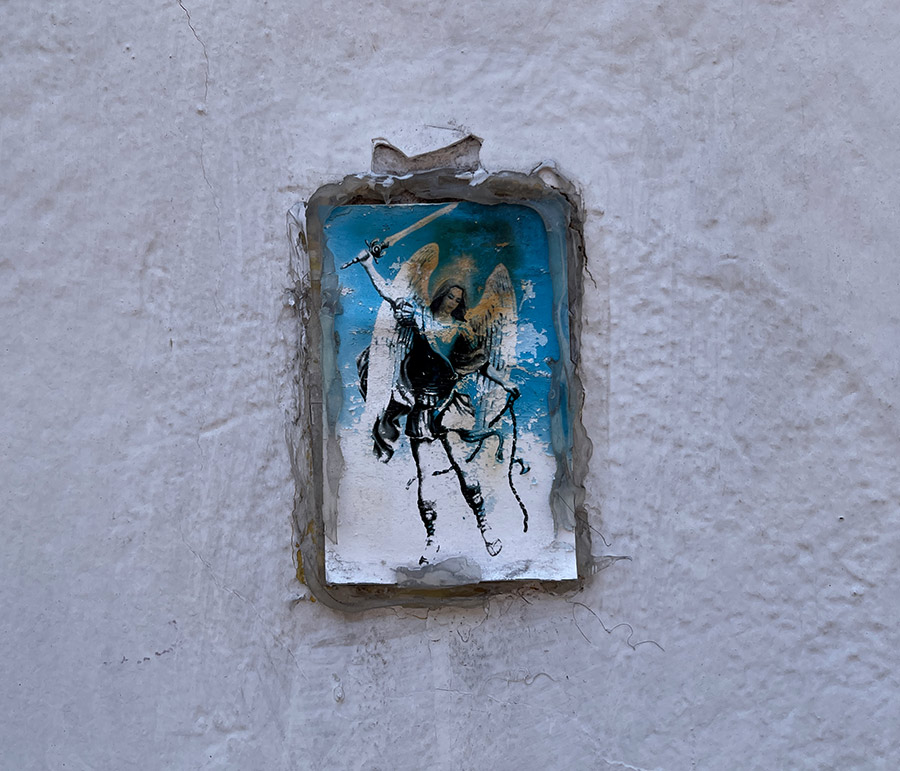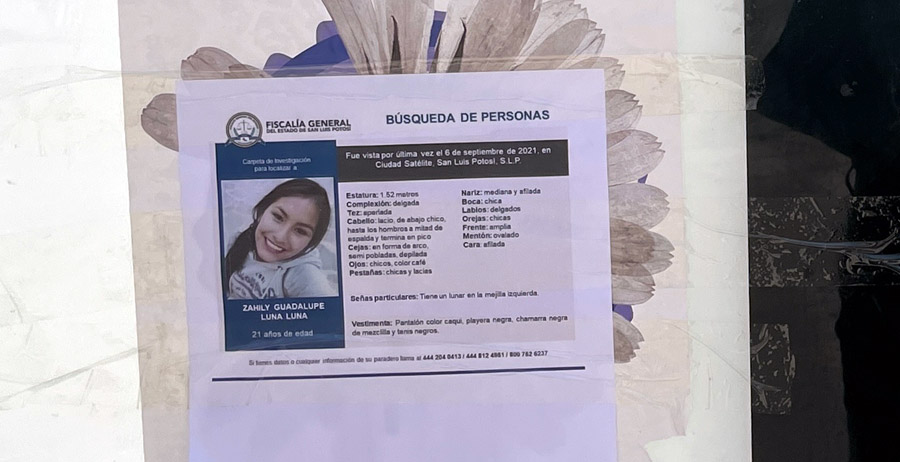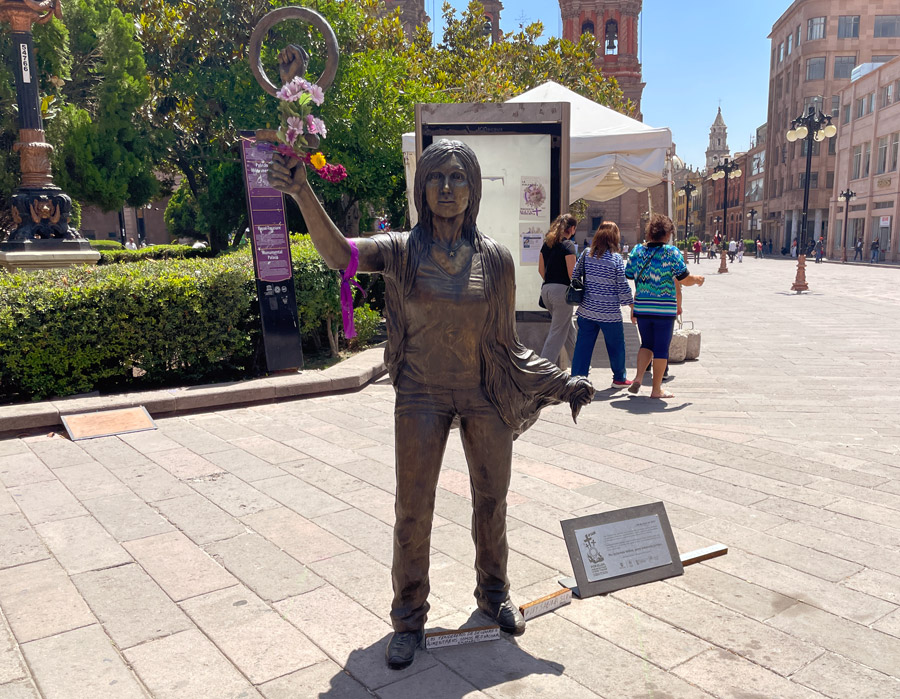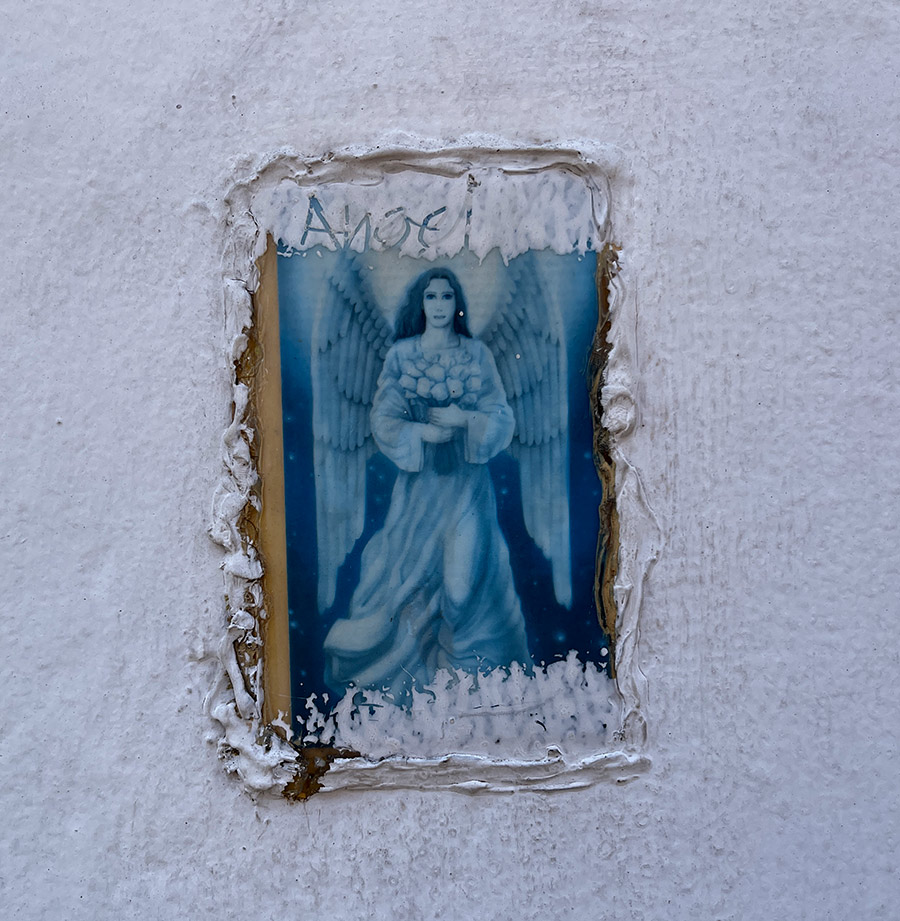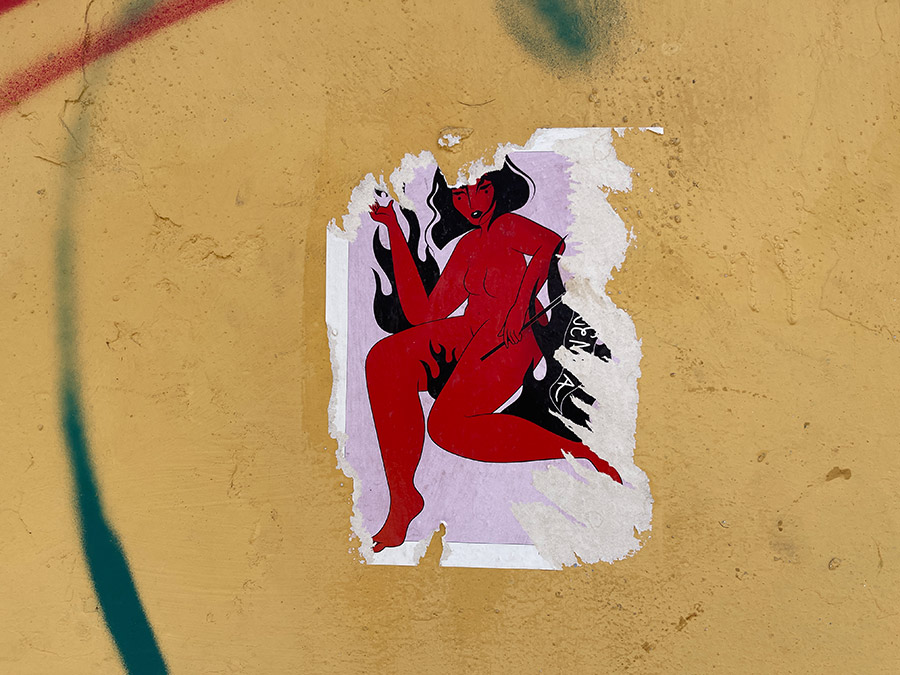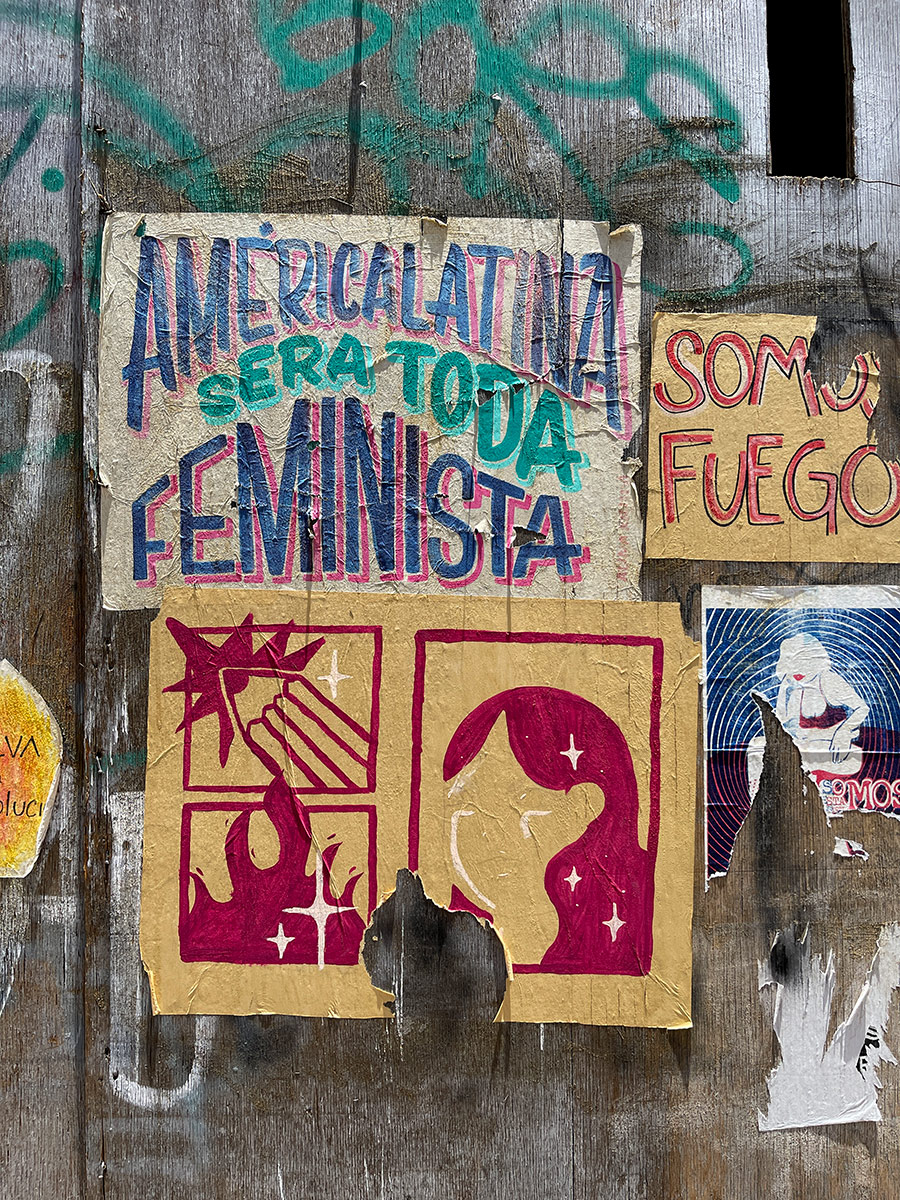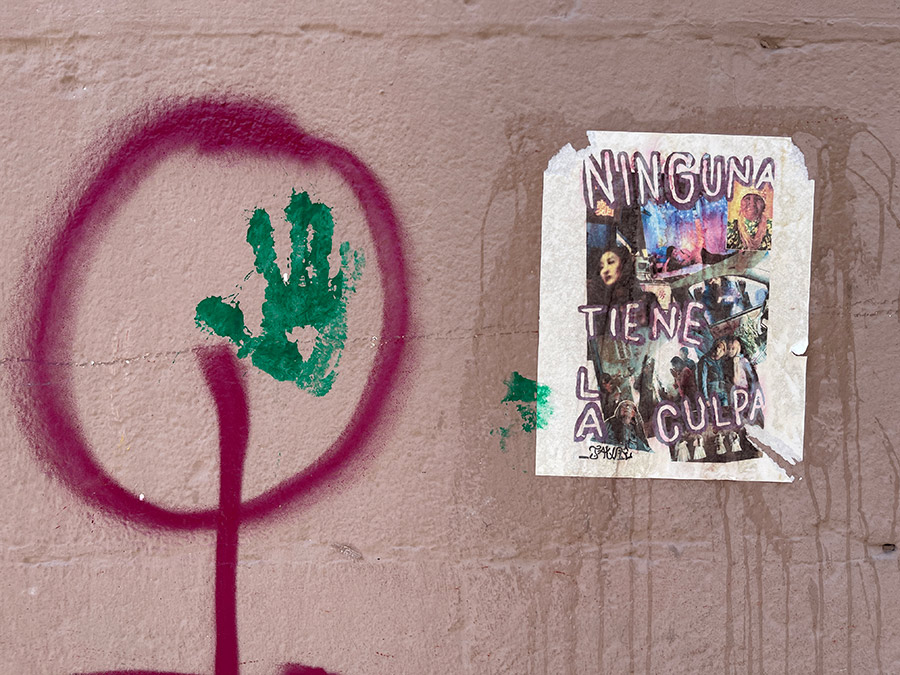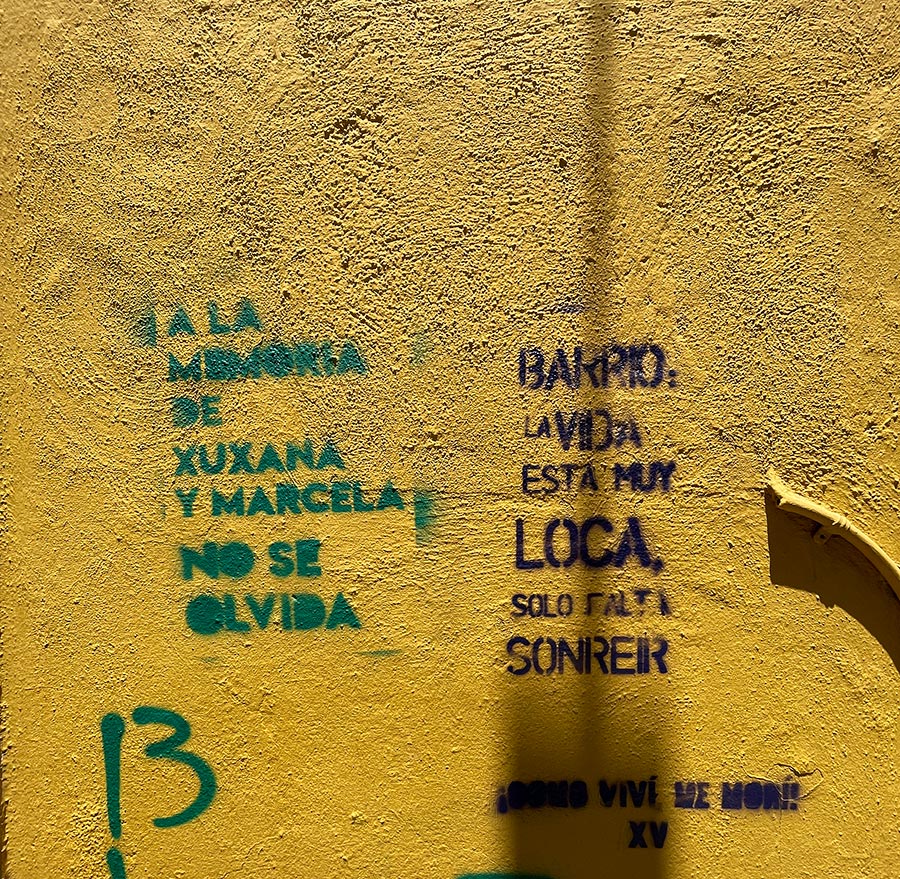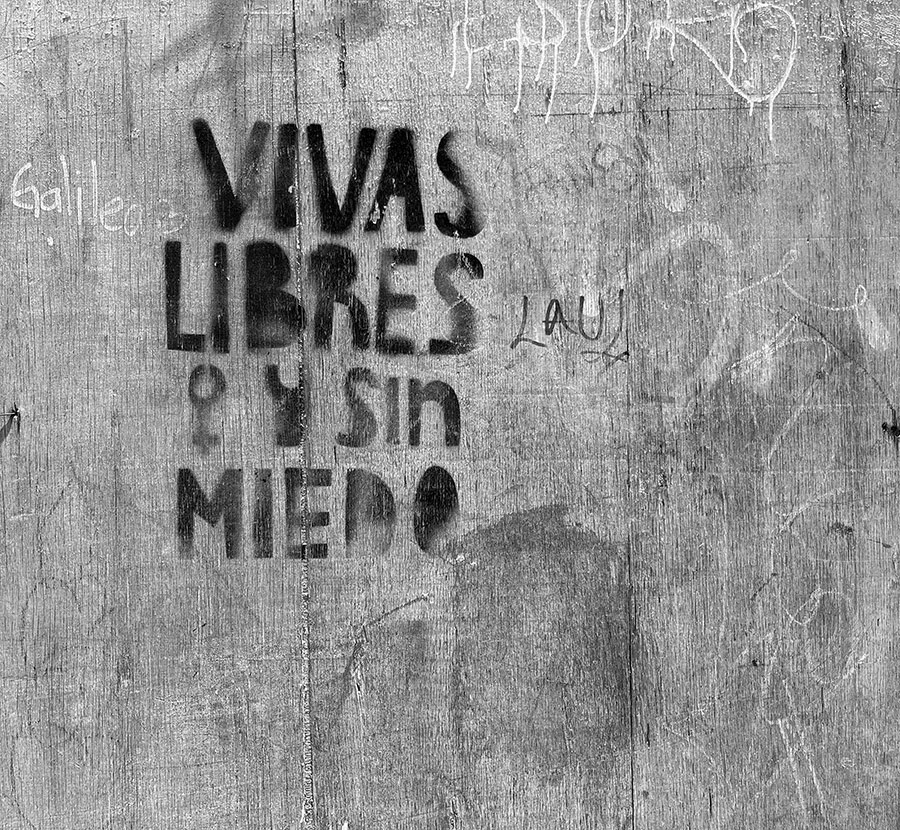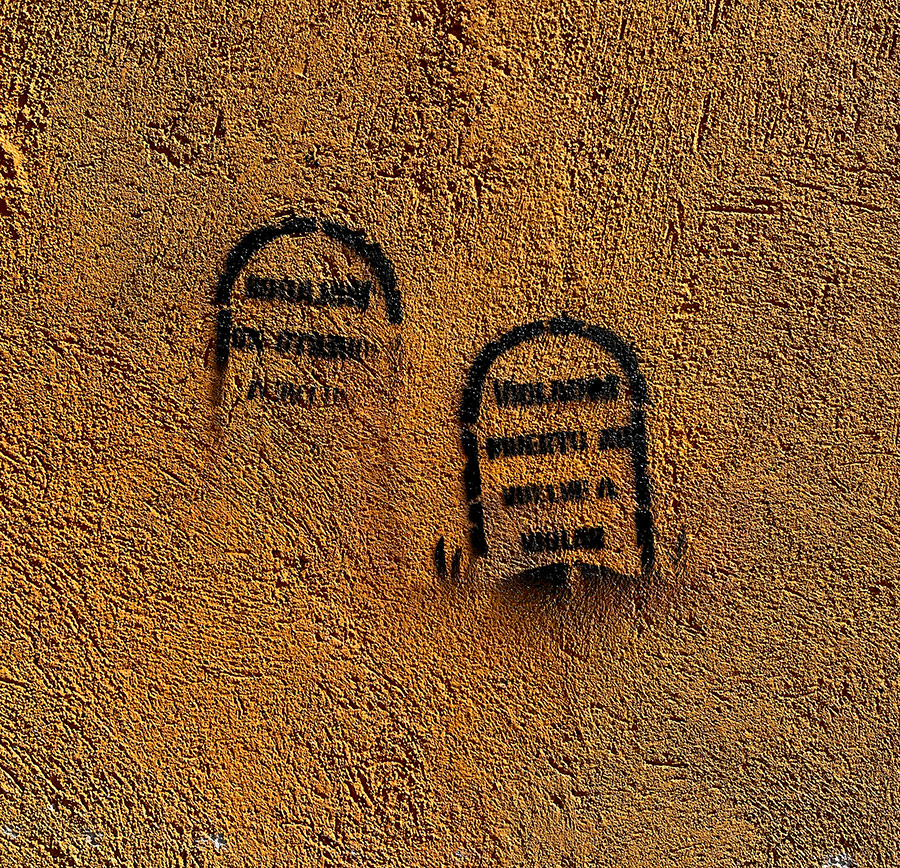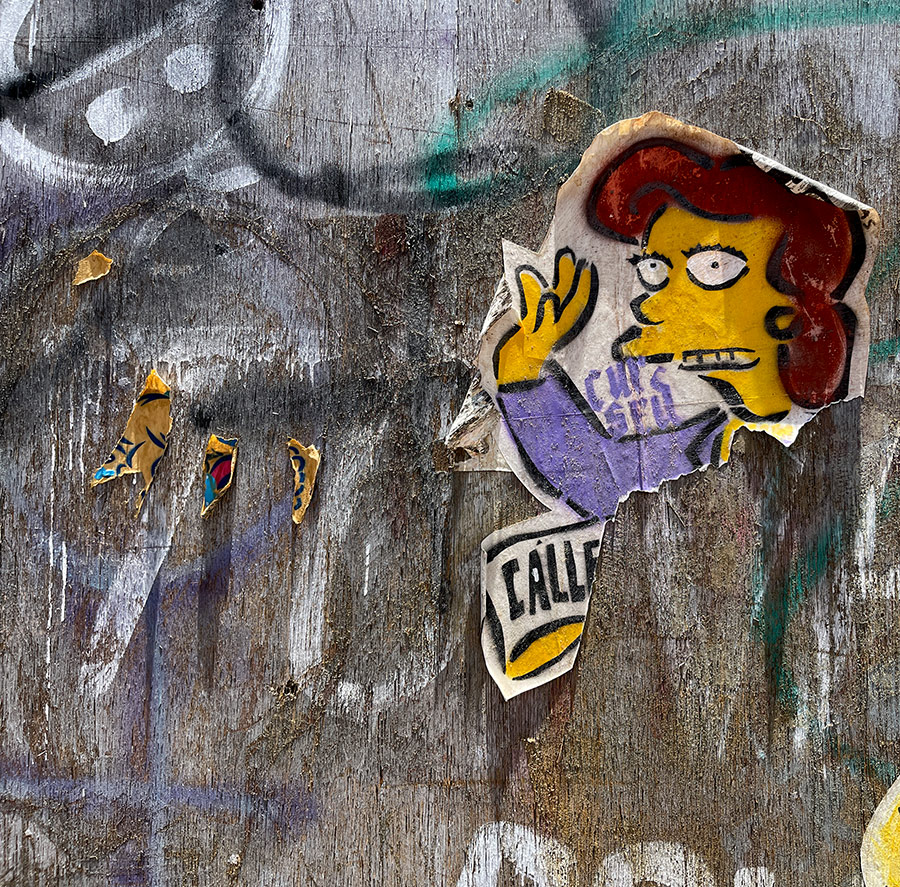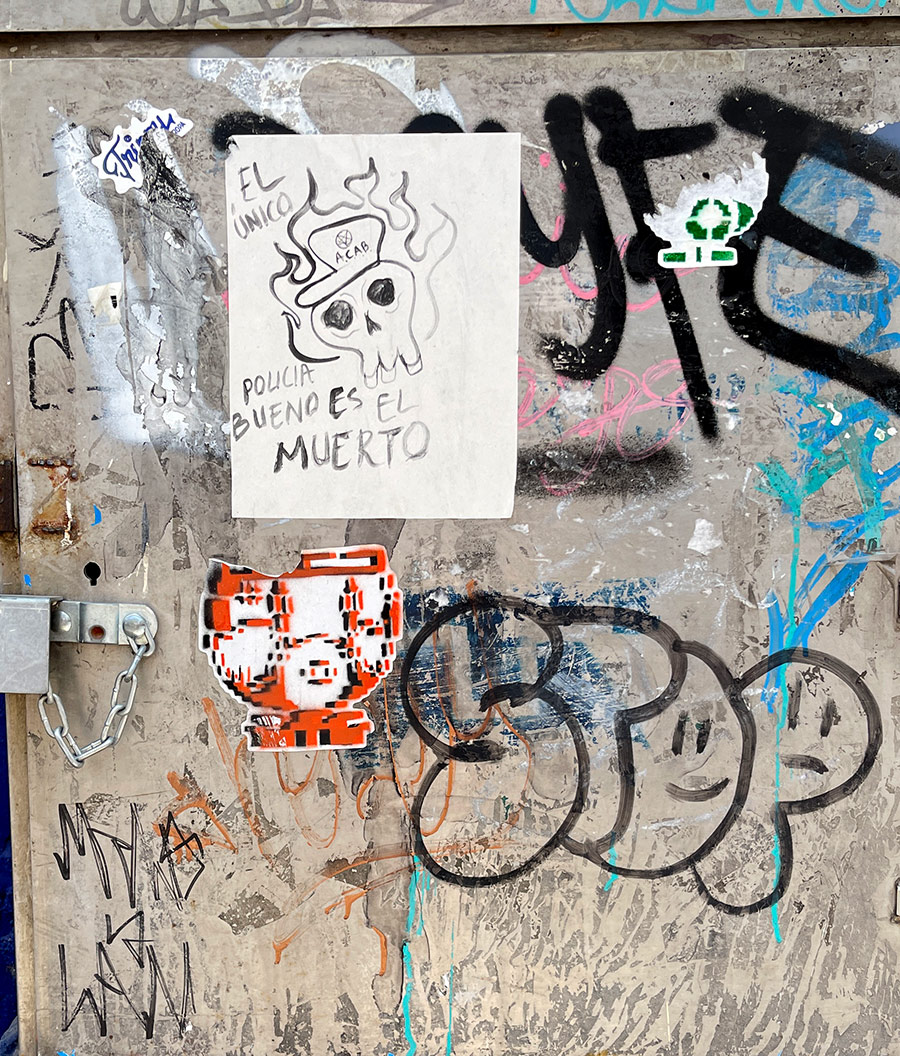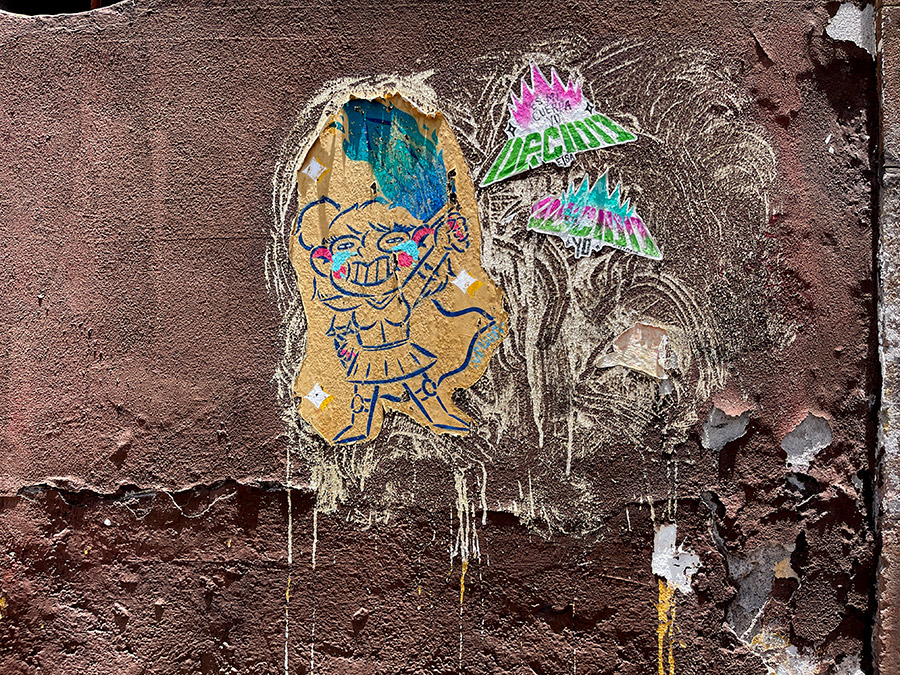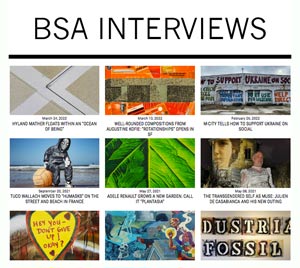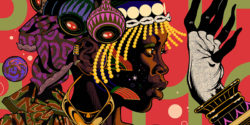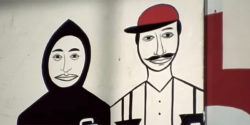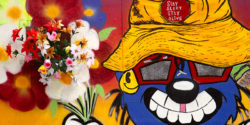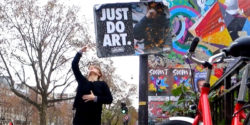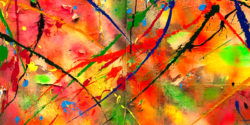Was Leonora Carrington revealing to us a world of creatures that once existed in our world which we evolved from, or was she following the natural indicators that she sensed to predict the world and people that we would eventually become?
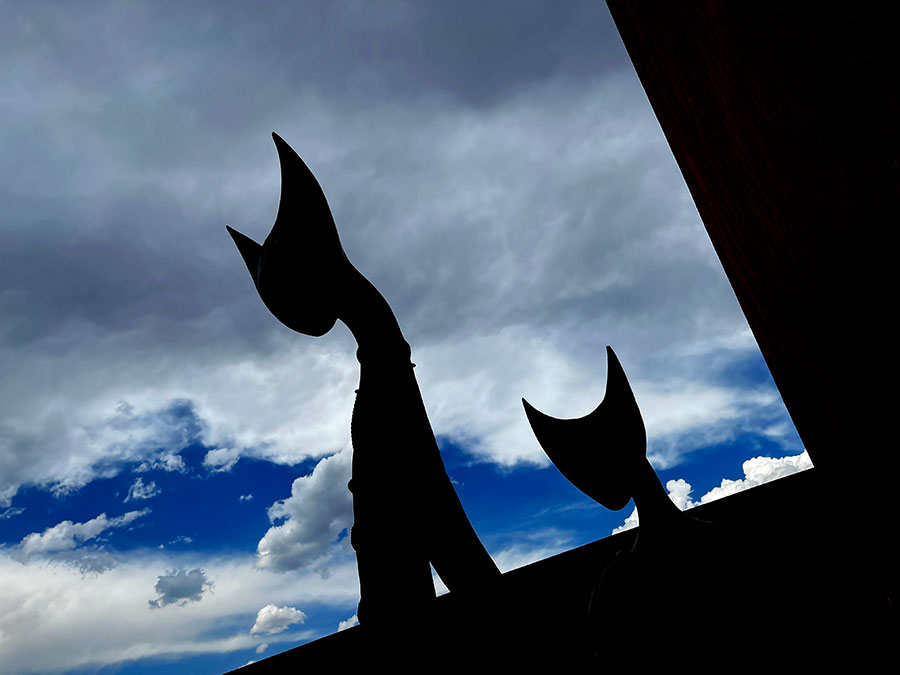
These man/animal hybrids have been adapted into pop culture via science fiction and even by politicians and scientists. Today we have cameras that read faces and individual physical gaits, drones the size of insects, robots that carry bombs into homes like long-legged spiders tottering over all terrains, and the ability to change the weather.
Prehistoric world descriptions suggest the existence of dinosaur-sized monsters that could fly and mythic, even Biblical writings conjure images of heads covered with snakes, people turning to pillars of salt, men parting seas, walking on water, etc.
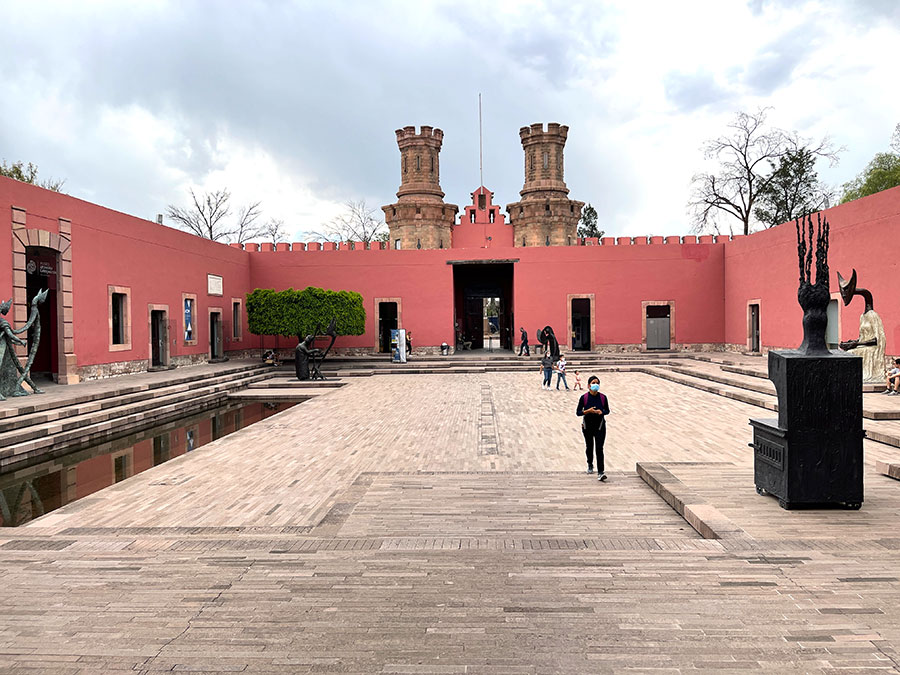
I don’t know if I’m inventing the world I paint,” said the Mexican surrealist Leanora Carrington, “I think rather it is that world that I invent myself.”
Was she being a coy artist, or was she empowering each of us with the ability to bend the arc of time, to alter the future with our imaginations?
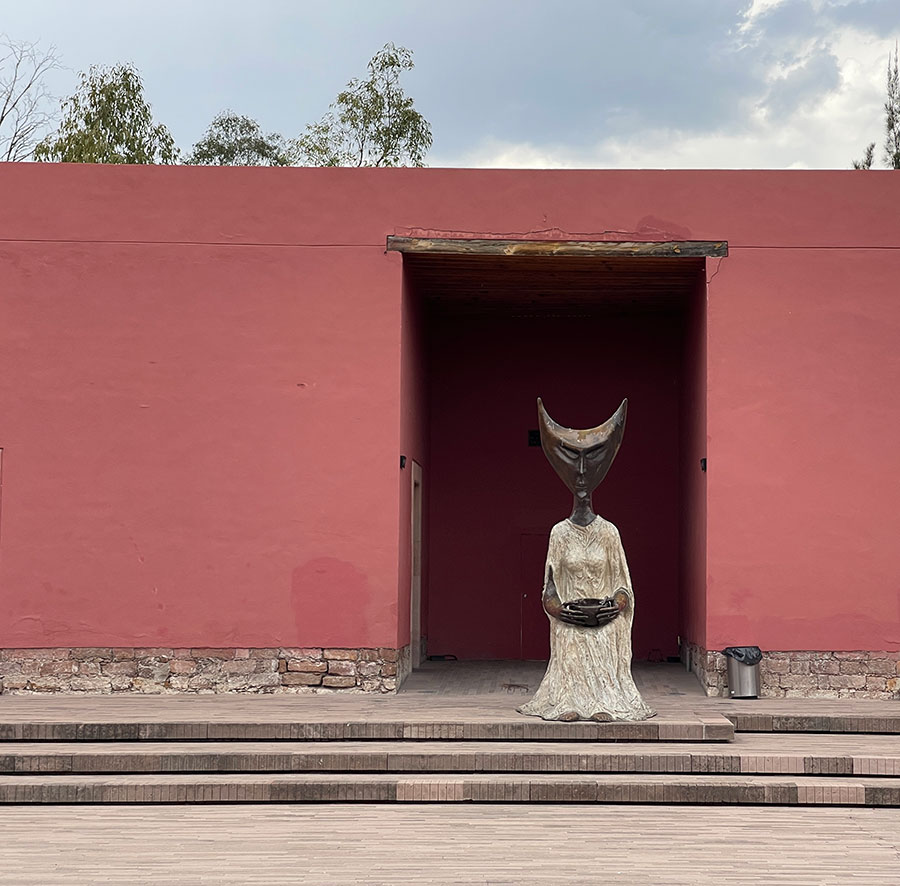
A recent visit to the Centro de las Artes San Luis Potosi in Mexico gave us the opportunity to see a collection of her astounding otherworldly sculptures and drawings and to appreciate her mind’s suggestions in a fully dimensional way.
“Art is a magic that makes the hours fade and even the days dissolve in seconds,” she said.
The 1940s in Mexico sprouted surrealism in art and literature that met, rivaled, and sometimes superseded the movements of Dali, Breton, and Ernst. The British-born Carrington was a surrealist painter and novelist, living most of her adult life in Mexico City, a five-hour drive south of here. Considered one of the last surviving participants of the surrealist movement of the 1930s, this country hosted a legion of artists embracing the surrealism and spreading the magic realism equally through literature and painting with names like the poet Octavio Paz, painters Alfonso Michel, Carlos Orozco Romero, Frida Kahlo, Diego Rivera, sculptor Luis Ortiz Monasterio, illustrator Roberto Montenegro, David Alfaro Siqueiros…
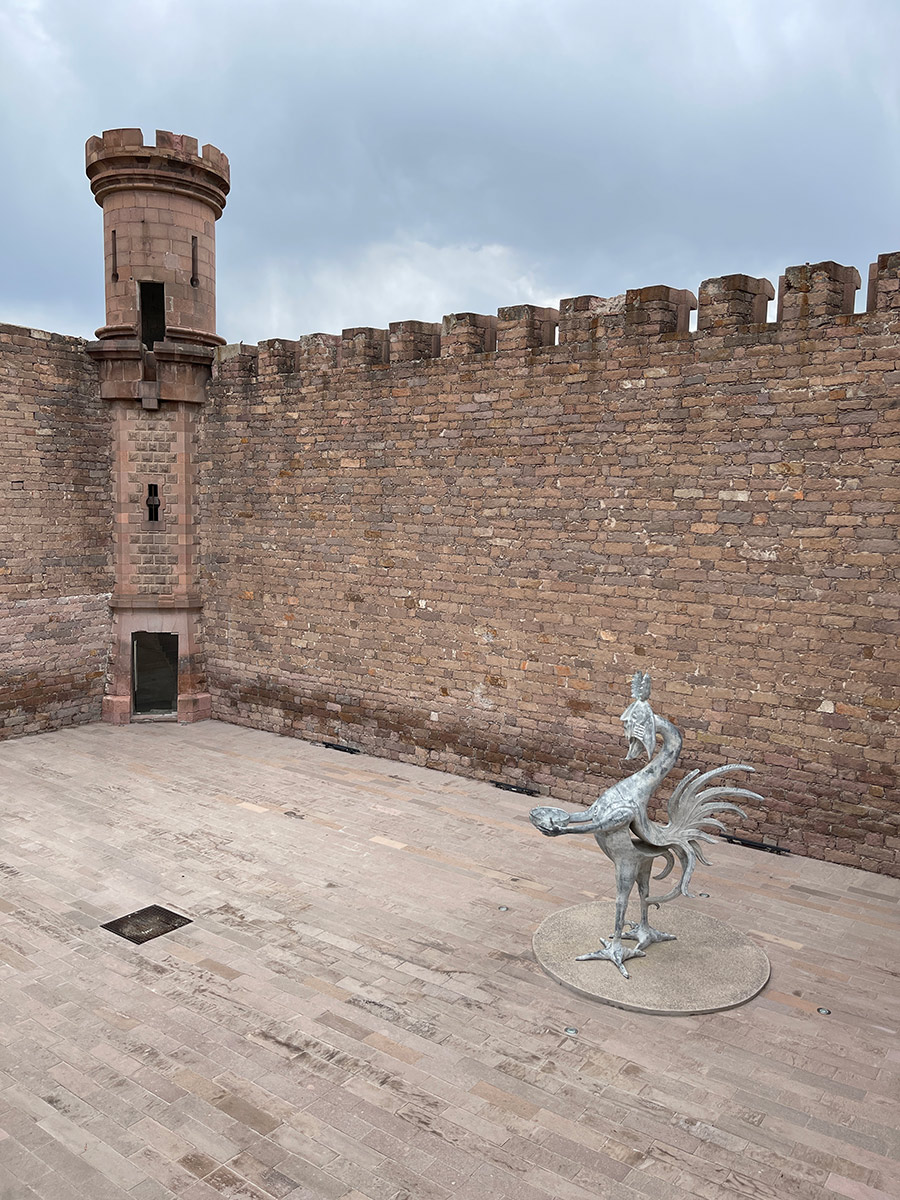
Industrial, post-industrial, and mechanized worlds were de-humanizing humans, pushing children into factories, de-naturing the natural world, compressing minds into chattel, steering humans into ovens, and giving them wings to fly high above the Earth – offering a continuous economic boom, followed by a bust, followed by a boom. Nothing has made much sense since then.
So it was little surprise to see the families at this exhibition in a former prison, the teens posing for selfies with figures that have animal heads, webbed appendages. Carrington’s references to sorcery, metamorphosis, alchemy, the occult and Celtic mythology blend magically into this country’s fixations- a native people’s psyche destroyed by the European invader, and Catholic church’s full-sized portrayals of the tortured, bloody body of Christ displayed in town after town – sometimes alongside the mystical hallowed figures that are so frightening as to evoke supervillans, or Phil Collins.
There is a strange logic to all of Carrington’s creatures – today grown adults wear similar costumes to conventions, and young men bomb villages in the Middle-East while sitting in a basement thousands of miles away. Are these wild frightful creatures what we were, what we are, or what we will become? Carrington is merely helping you imagine.
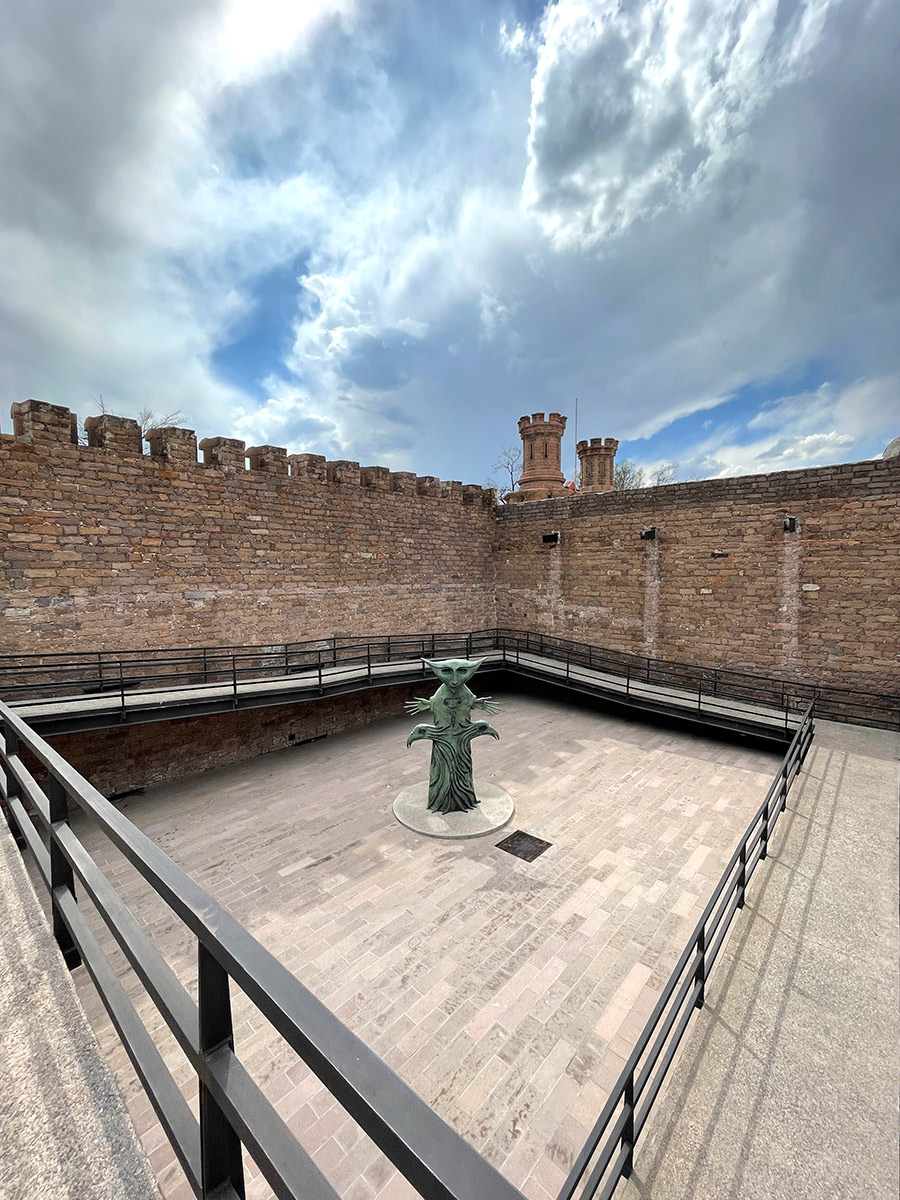
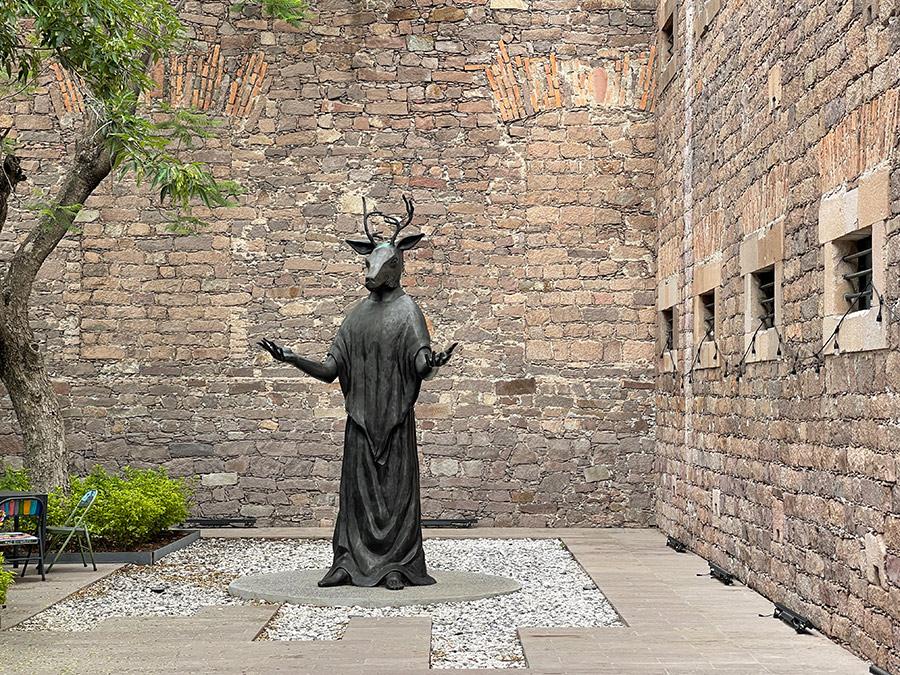
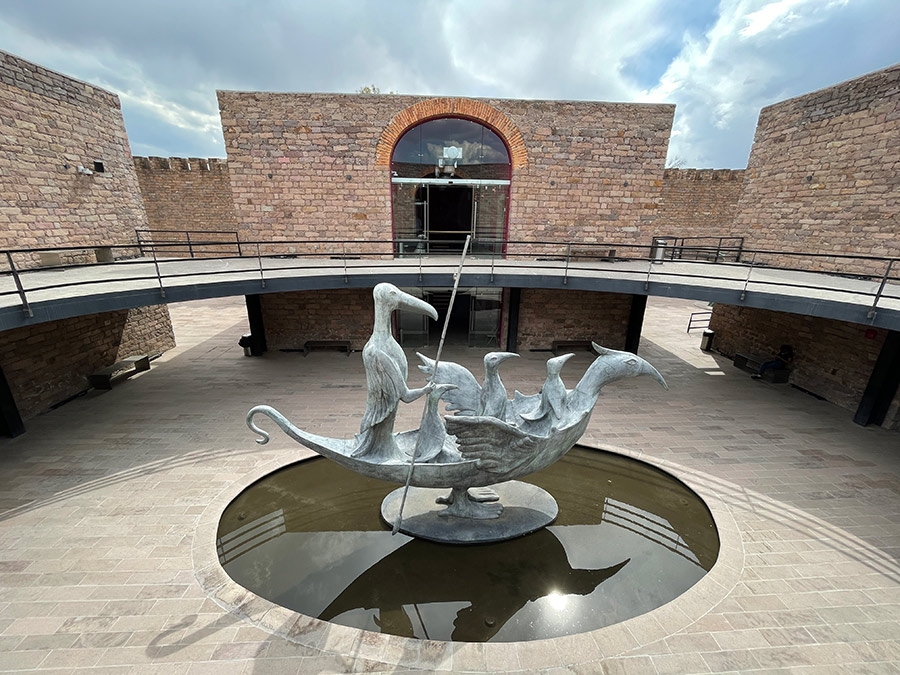
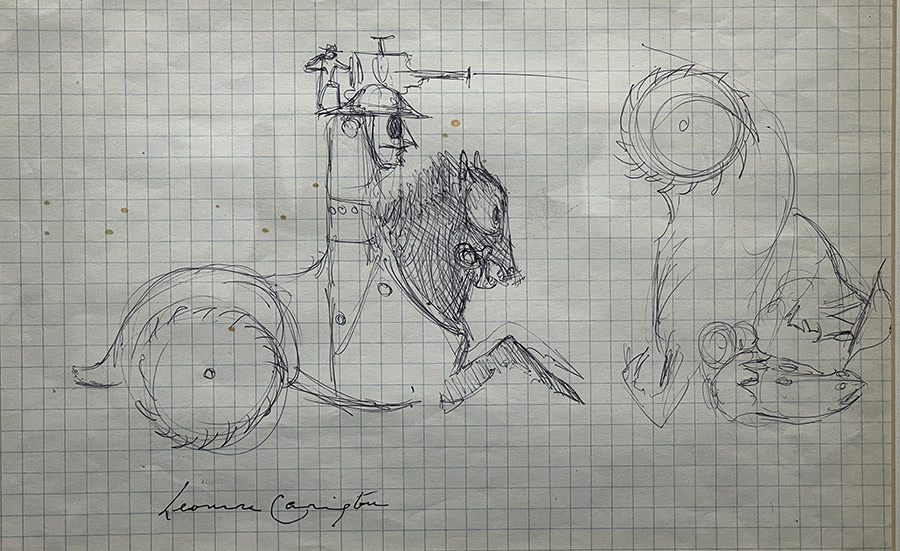
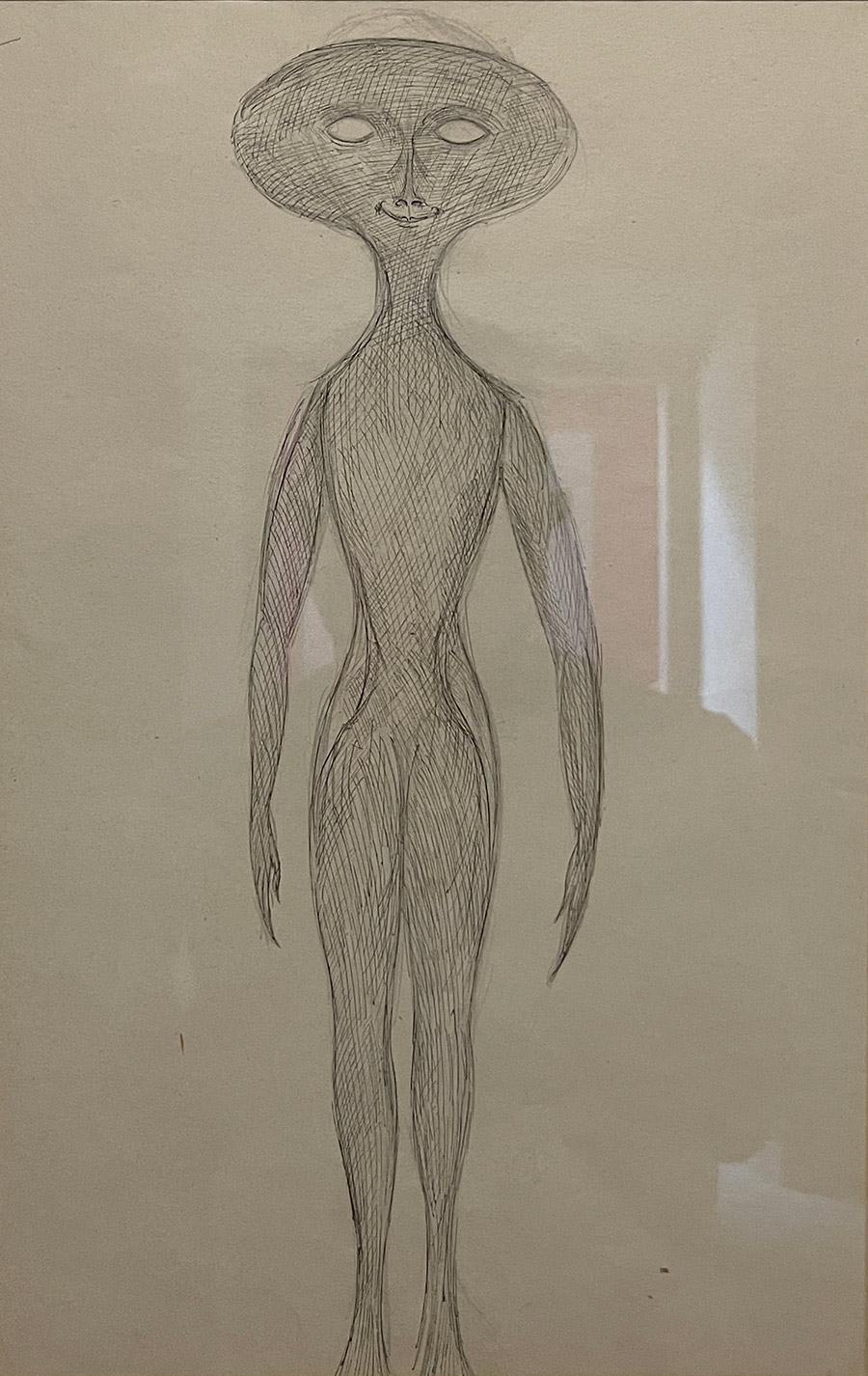

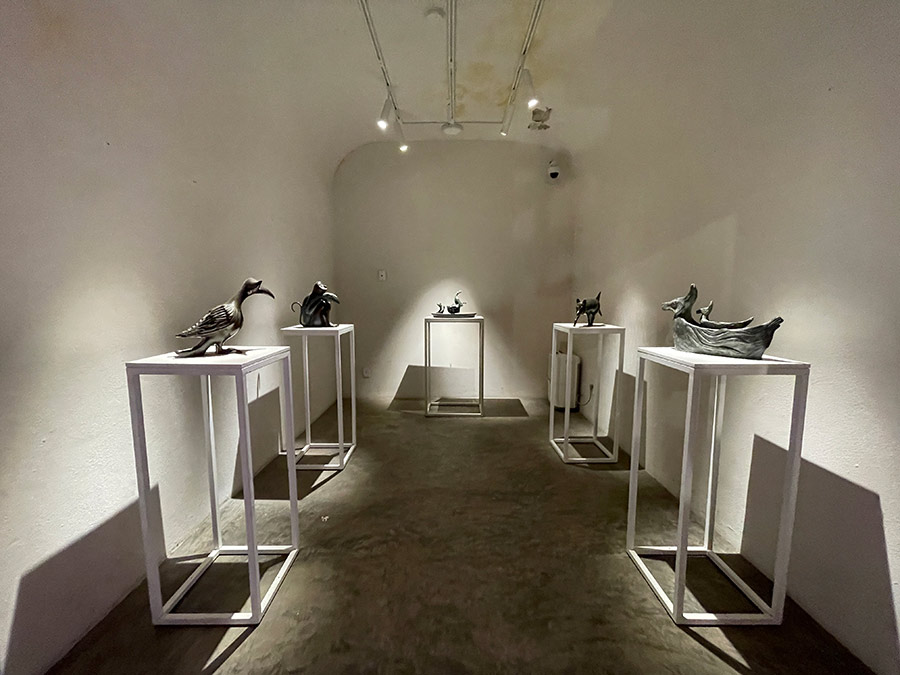
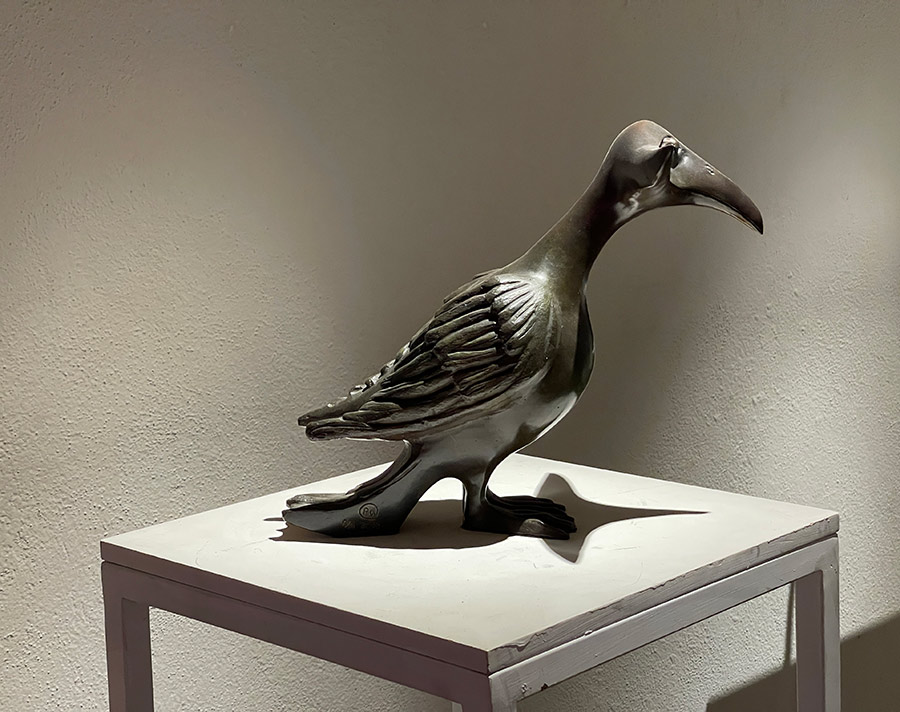
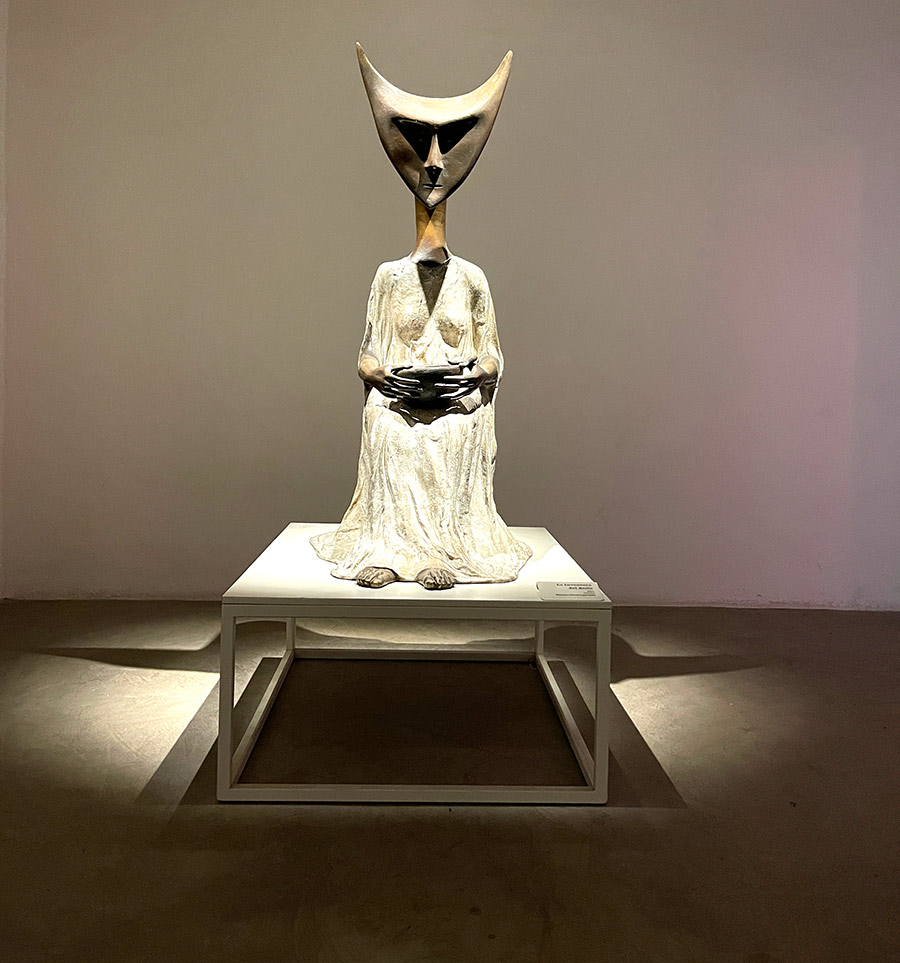
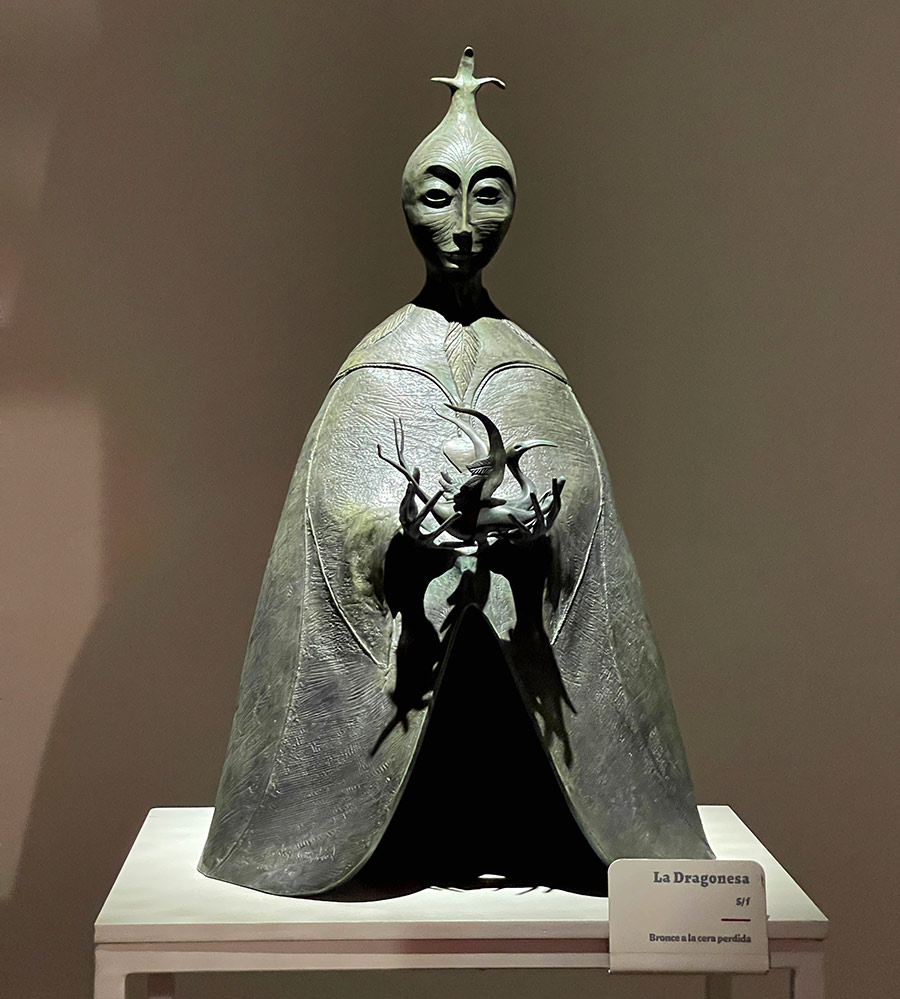
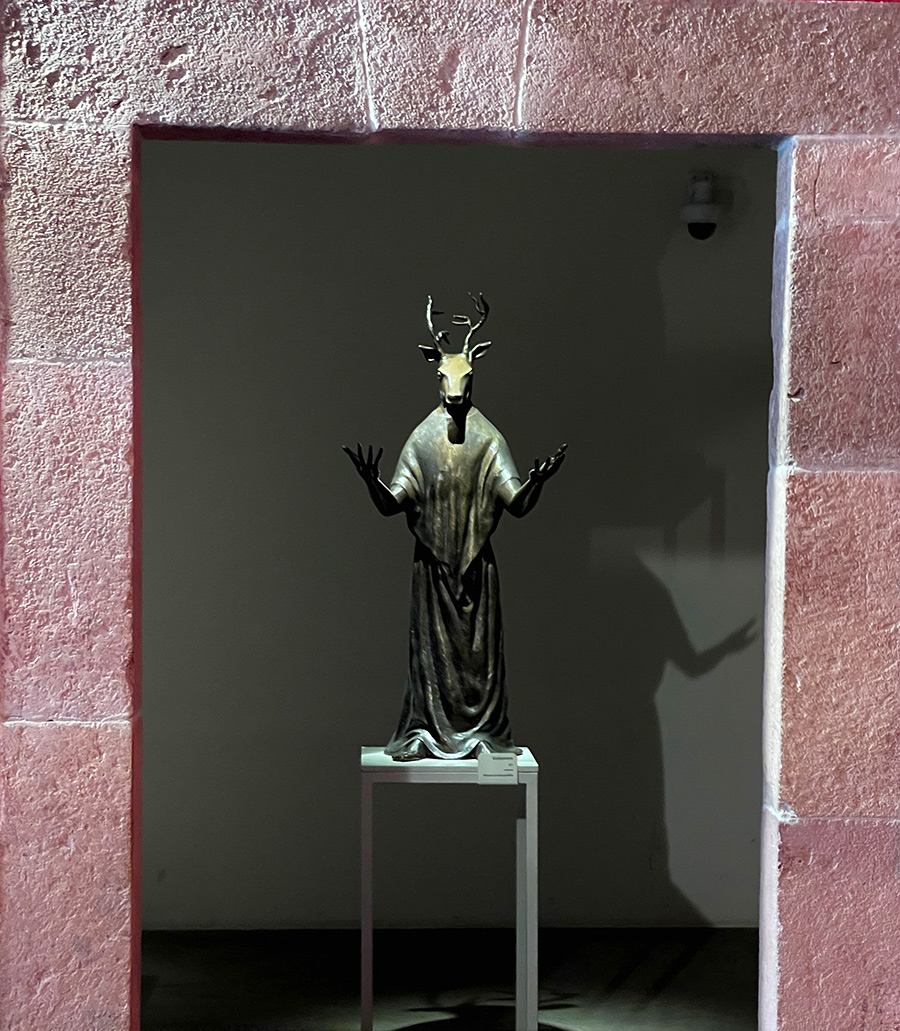
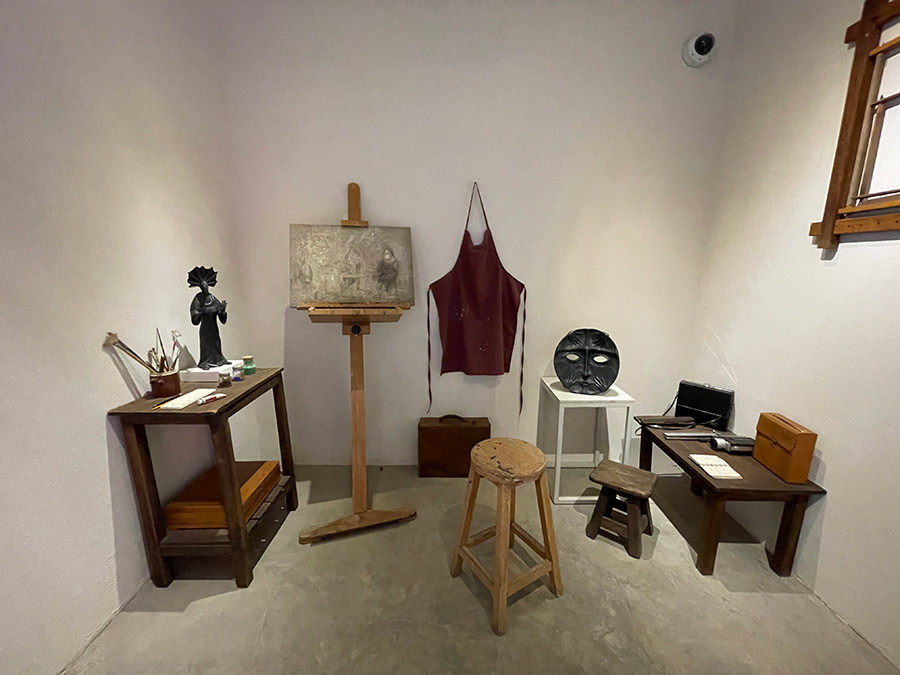
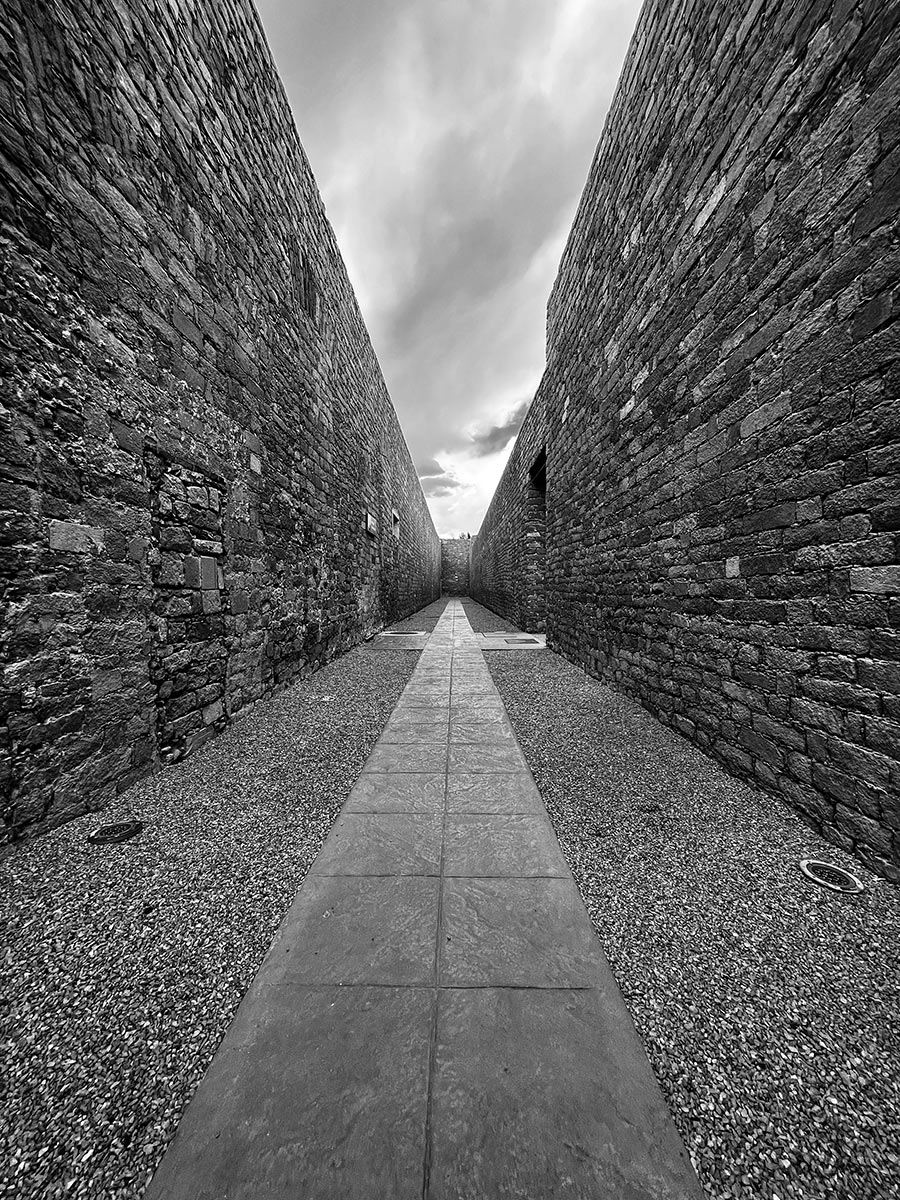
 BROOKLYN STREET ART LOVES YOU MORE EVERY DAY
BROOKLYN STREET ART LOVES YOU MORE EVERY DAY